The Backlog - Hotline Miami 2: Wrong Number

The first Hotline Miami game is one of those rare titles that is almost universally liked. It is an ultra-smooth, ultra-violent hack-and-slash crime game. Each level functions almost like a puzzle. You have a defined toolset, and you have to make it through the gauntlet of vicious enemies without dying. In many ways, Wrong Number is a very similar game. You choose your mask, and with it a special ability, and then you have to clear out the level, dodging bullets and stabbing dogs.
If they had stopped here, they could have just made a basic sequel, and it would have been a very good game. It wouldn’t have the originality of the first, but it would still be satisfying to have a whole new set of deadly problems to solve while that fantastic electronic soundtrack thumped along in the background.
Boundless Discover: The Majesty of Adventure in Games

Games as a medium are about letting you enter a new world, step into the shoes of someone else, and see majestic things. They are different from other kinds of media like film or literature because you have to interact with them. A movie will keep playing, a book will keep going, no matter how you wish to proceed through it, but a game requires you to interact with it, and this interaction can change the course of the story.
More and more games are being built around open worlds and non-linear experiences. They let us as players take this sense of adventure that is so inherent to games and amplify it, and there is no better example than The Legend of Zelda: Breath of the Wild.
The Backlog - Killing Floor
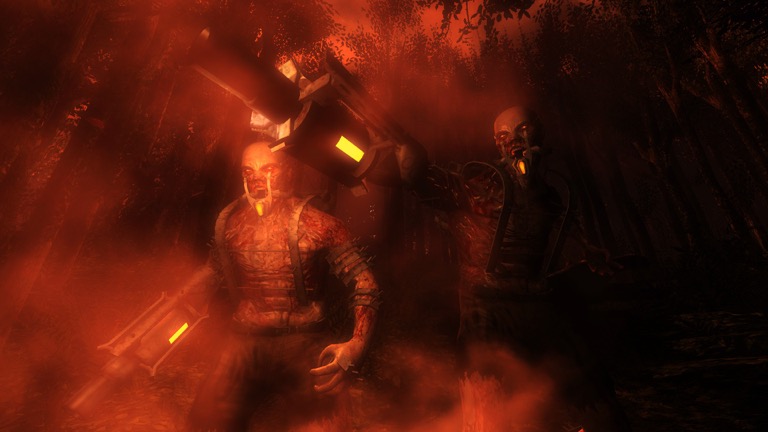
Some things are just good ideas. Cheese pizza, Arnold Schwarzenegger, kung-fu movies, and of course, zombie shooters. There is something so satisfying about killing zombies, possibly the distinct lack of morality in slaying the undead or the huge number of enemies that you come across, or the absolute ease by which they are felled.
We’ve seen countless games use them as bullet sponge enemies, but ever since 2008’s Call of Duty: World at War and it’s bonus “Nazi Zombies” mode, there has been a place in our games for zombie wave-based shooters.
Paid Mods and Giving Creators Their Due
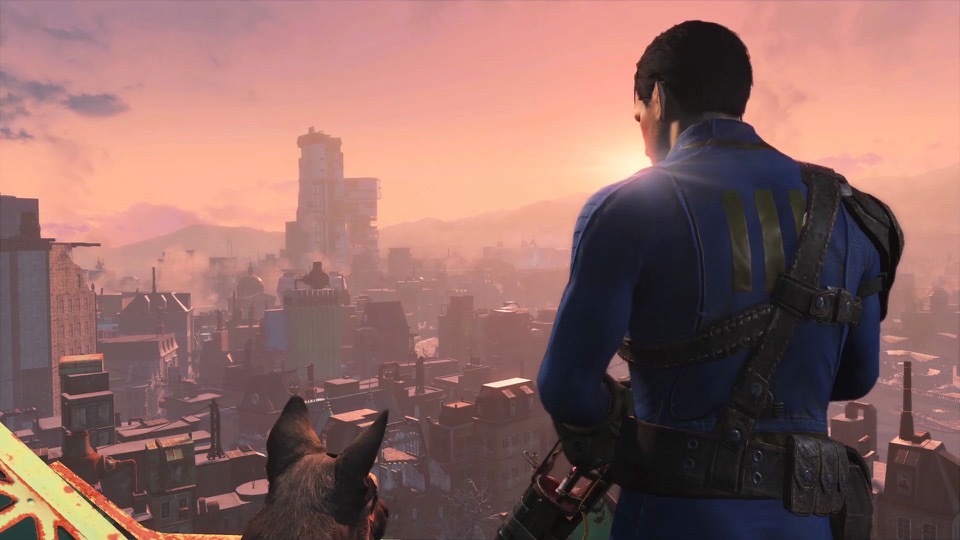
Bethesda just cannot catch a break. This year at the Electronic Entertainment Expo (E3), along with announcing yet another version of Skyrim, they stated that they would be implementing a system whereby they would be able to begin charging for select modifications for their games.
This has made a lot of people very angry, and been widely regarded as a bad move.
Almost immediately, the collective game community had a conniption, with resurfacing memories of the Valve paid mod debacle of 2015. Part of this is probably due to broad opinions about and distrust of Bethesda, but another part of it is due to a general unwillingness to pay for things within the games community. Especially things that were once available for free.
The Backlog - Insurgency
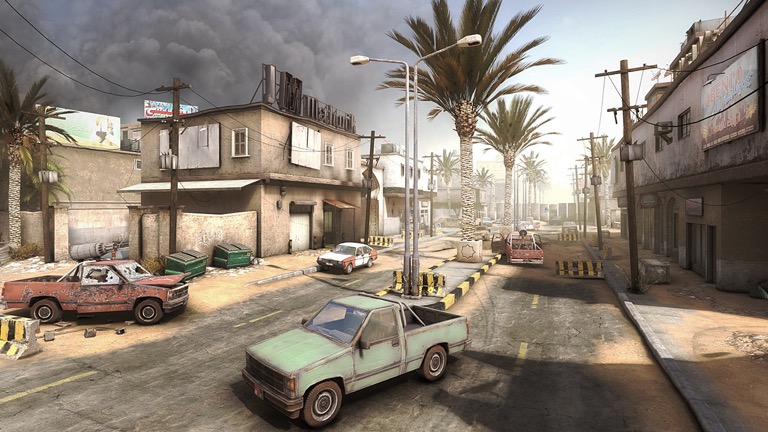
In the past few years, the simulation genre has broader into a more nebulous space than it was a decade ago, with the description taking on a memetic appeal in the gaming industry, being applied to anything and everything. While the idea of a combat simulator has been explored before by games like ARMA, there is still room for something else. Insurgency aims to provide that, with a smaller scale recreation of multiplayer gun battles between rather ordinary groups of soldiers and insurgents.
An average game of Insurgency focuses on squad based combat between two teams, each made of up a few distinct classes. Each class has a few weapons to choose from, with a scattering of rifles, carbines, machine guns, assault rifles, and submachine guns split up by speciality. But unlike a game like ARMA, the customization is bare bones. You are kitted out like members of an infantry unit, not an elite special forces operator, and you have to play around the limited resources you are allowed.
E3: Where Do Games Go From Here
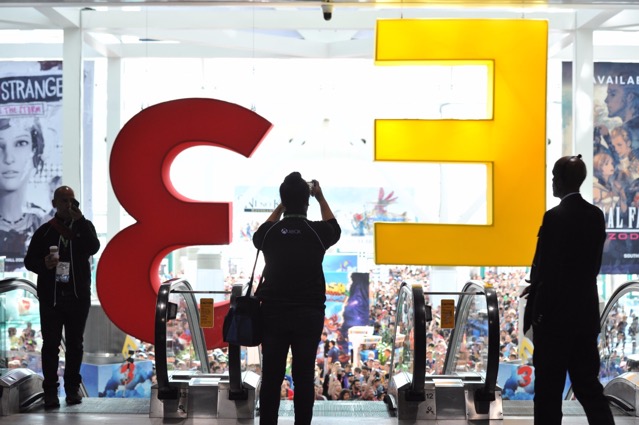
There is a certain attitude within the broader game community where we see ourselves as the scrappy underdog, an industry supported by impassioned and oft-misunderstood fans that is constantly maligned by the mainstream media in favor of more traditional entertainment industries. Where the only thing that keeps game companies afloat is die hard fans, and the worth of a game is measured by the community engagement online.
We’ve had this attitude for years, because for a long time, it was kind of deserved. Games were a hobby for silly kids and “nerds” socially undesirable and turning towards a digital medium for comfort.
But we’ve left that attitude behind a long time ago. Video games are about as mainstream as it can get, and playing games is no stranger of a hobby than watching sitcoms, cooking, or hiking.
Monolith - Review
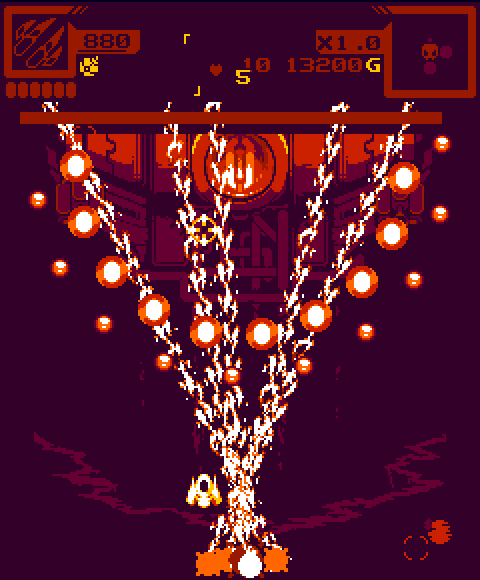
Roguelikes are a genre that we’ve written about many times before, and will no doubt continue to revisit for a long time coming. In some ways, it is the perfect genre for an independent game, as it has an inherent sense of replayability to it that other genres lack. Level design is still important, but by allowing the gamer to slot remade rooms together at random instead of having to design each level by hand makes for a significantly easier creation process. And players are far more forgiving of repeated assets and gameplay in roguelikes than they are in a first person shooter or adventure game.
Monolith takes lessons from its predecessors (The Binding of Isaac) to blend the room-by-room, top-down roguelike gameplay with "bullet hell-esque" boss fights, and the marriage is a remarkably happy one. Your little ship can flit and soar across each room, dodging shots and tearing apart your enemies. You feel capable, partly because it isn’t a particularly difficult game, with a high baseline of health that lets you tank way more shots than most roguelikes do out of the gate, and it’s relatively easy to restore your health pool, or even expand it later on in the dungeon.
Ludonarrative Dissonance
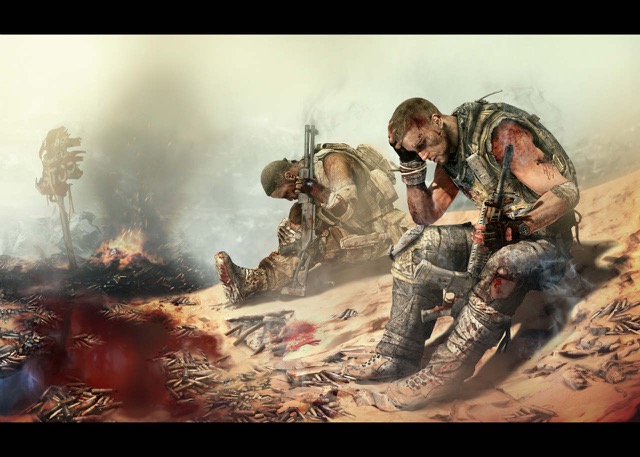
Games are a rather interesting medium to critique because of the crucial role that interactivity plays in how a story is interpreted. With a film or book, we are stuck in a single viewpoint and experience the story as if we were locked onto a roller coaster: tightly restricted and controlled. But in games, the player adds a crucial X-factor of randomness into the story that the creator has to try to control for.
To see all of the story, the player has to advance forward, completing a certain set of tasks, but sometimes the very function of the gameplay is at odds with the themes of the story being told. It is a familiar feeling within media, but games stand alone in that the layer is forced into “choosing” to do the tasks even if they don’t want to.
Drifting Lands - Review
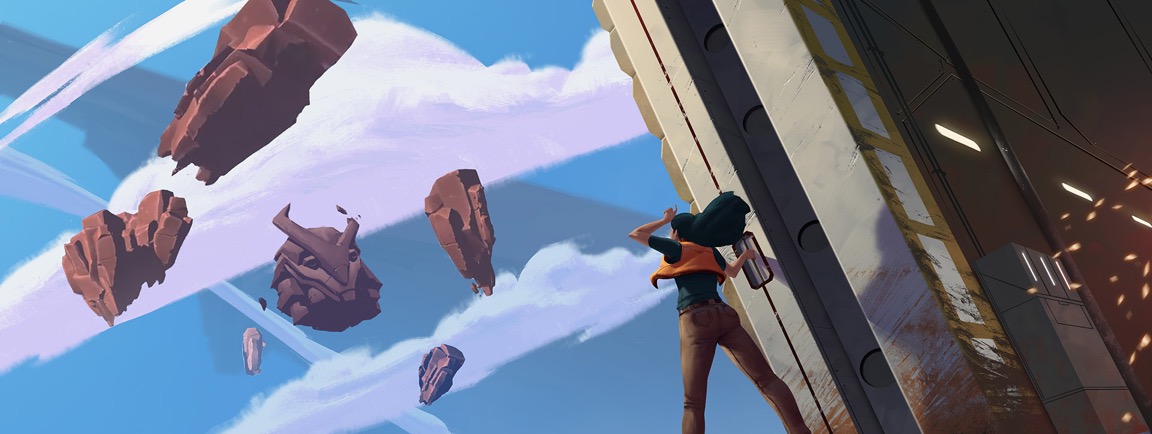
Side-scrolling shatters have always been a fun distraction for me, but even after all of these years, they have not broken out of their form. They are fun, and they present. Certain kind of intriguing challenge for us to play with. They are mastery systems laid bare, asking you to learn movements and actions to the extreme so you can fly through a hail of bullets and come out the other side unscathed. It’s no wonder that there are a huge number of side-scrolling shooters that also fall into the “bullet hell” genre, characterized by maze-like arrangements of bullets for you to try to navigate through with split second timing. They are the epitome of control, often giving you only a few pixels of clearance to squeeze through.
Drifting Lands tries to take these established formulas and turn them on their ears by injecting loot and leveling elements to add layers of complexity to the formerly simply design. Before you just had to dodge and shoot, but now you have to manage a cargo-hold/inventory, stat points, color-coded inventory, damage and attack types, all with the change to accidentally lose it at any moment and be thrust back to the beginning of your journey. It seems that along the way towards adding replayability and complexity into the game, they simply went too far.
The Backlog - Shadow Warrior
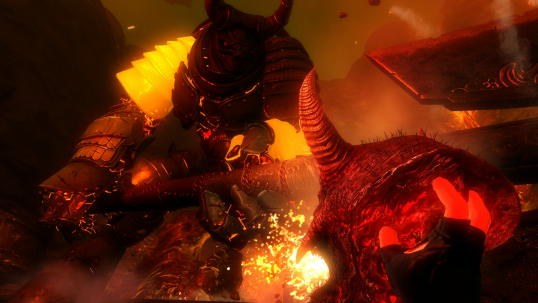
There is something about swords that are just kind of cool, that voice in the back of your mind, even as you laugh at absurd sword collections on the internet, that tells you "but wouldn't it be cool to slice apart a watermelon like you were some kind of cybernetically enhanced ninja?" Shadow Warrior takes that in the remake of the old-school shooter, combines it with a healthy dose of inappropriate humor, and enough blood to make Takashi Miike jealous. You are a Yakuza assassin tasked with re4covering a famous sword, and saddled with a sarcastic demon sidekick (and a whole lot of firepower).
In all honesty, it feels like this game should be so much worse than it actually is. It does not describe well, but in practice, it continues the trend of modern remakes of 3D shooters being pretty damn good. Half of the time, it feels like you are runing your way through some kind of weird anime, and in so many ways that works to it's benefit.
Frequently, when a game has first person sword combat, it is less than engaging, devolving into a flurry of repetitive, weightless attacks and blocks, but here that is far from the case. You have a series of special attacks along with a set of Japanese styled guns to help mix up your attacks and deal with enemies at longer range. You feel just as powerful as your character is supposed to, which is an issue that I hate running into in a game.
The Backlog - FTL
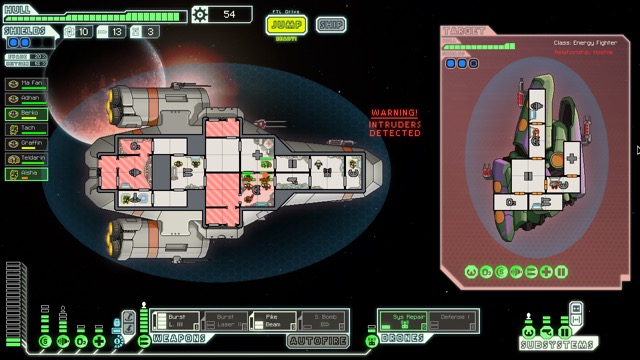
I have a confession to make. Like many of you reading this, I have a list of games that I’ve been meaning play for years. I have way too many games on Steam, and a stack of cases sitting next to my TV. Close to five hundred games now. Maybe more. It makes me feel guilty. I haven’t touched 90% of them in one way or another. I need to fix that. So this week, I dug deep into my backlog and pulled out a game. I want to play all of them; I’ve just never had the chance. Now’s the time.
For some reason, it seems that I can't bring myself to stop playing roguelike/lite games, even though my criticism of them remains the same every time I lay a new one. FTL has been out for several years now, and while it does bring a slightly different style to the genre, it does so in a shell that can feel almost punishingly random, even after dozens of tries. It is a game about time management, a game about the agony of unknown decisions, a game about hoping for the best all wrapped up in a skin of a procedurally generated roguelike/lite space game.
Atmosphere
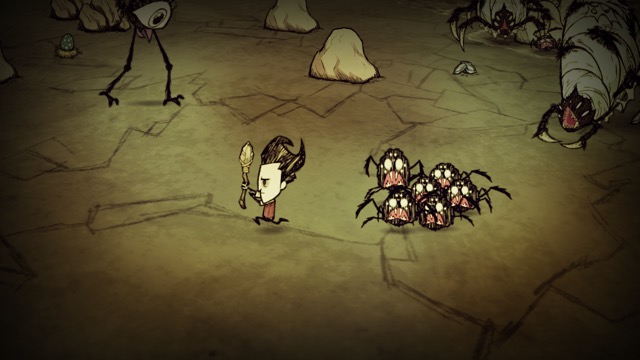
When we discuss games, especially those within the horror genre, this idea of “atmosphere” comes up again and again. I reference it rather frequently in my own writing, but one thing that we commonly neglect to do is actually say what we mean when we use it.
As it is right now, it exists as one of those, oft-used game review buzzwords, sitting alongside other repeat offenders: “visceral”, “moody”, “tight”, and countless others. We use it because it is easy, a simple way to get across a complex idea about the situations a game puts a player in, and the wide array of emotions that it evokes within you, and it would greatly benefit us all if we took the time to examine this sense to see what we really mean when we talk about atmosphere in a game.
Roguelikes and Story
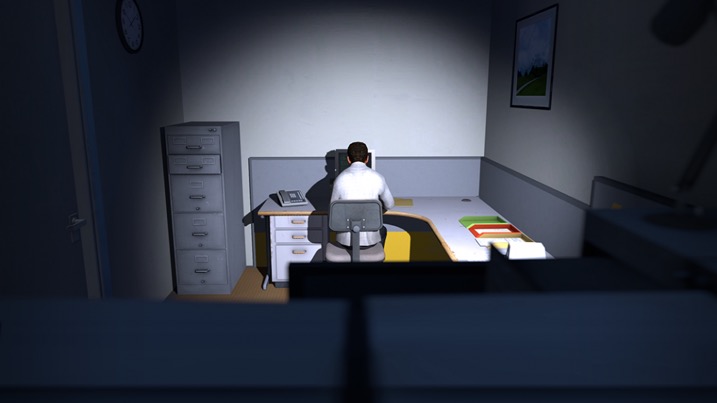
I’ve written about roguelikes before, but one thing about these games has always been limiting, at least in my opinion. The implementation of a story (or lack thereof) constrains these titles, prevents them from being something other than a casual endeavor to pick up and play when the mood strikes, and then drop after a particularly frustrating death. As a genre, it hinges on gameplay and mechanics so much because mastery and its pursuit is what keeps players coming back.
The idea of “grokking”, of not only understanding the mechanics of the game, but absorbing them enough that it enables you to look at the game differently, is the bread and butter of the Roguelike/lite genre. Sure you want to reach the end of the dungeon and fight the last boss, but even after that, you will endlessly chase the perfect run, the platonic ideal of what a playthrough could be, where everything comes together just right, with all of the correct pickups and weapons to make playing a breeze.
The Backlog - Starbound
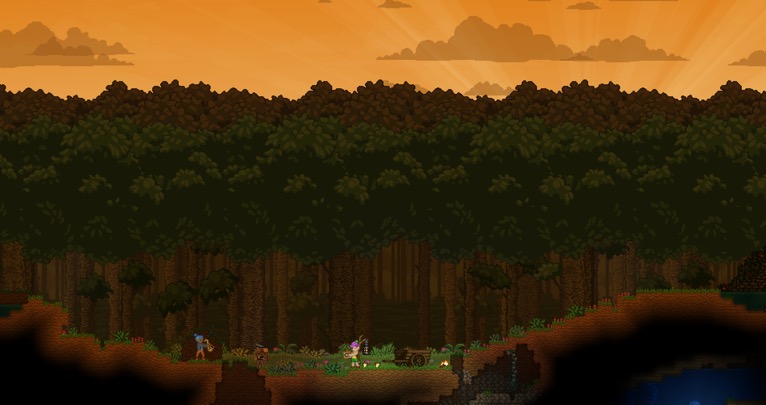
I have a confession to make. Like many of you reading this, I have a list of games that I’ve been meaning play for years. I have way too many games on Steam, and a stack of cases sitting next to my TV. Close to five hundred games now. Maybe more. It makes me feel guilty. I haven’t touched 90% of them in one way or another. I need to fix that. So this week, I dug deep into my backlog and pulled out a game. I want to play all of them; I’ve just never had the chance. Now’s the time.
Before we even noticed it, survival games came to dominate the indie PC space, pushing aside roguelikes to utterly saturate the market. Taking their cue from games like Minecraft, the scavenging, mining/survival game industry is a big one but luckily Starbound manages to carve out a place of its own. Strongly influenced by Terraria, but with some excellent quality of life changes along with a decent enough quest system that actually gives you a reason to explore the world after you have established yourself.
The Backlog - Devil Daggers
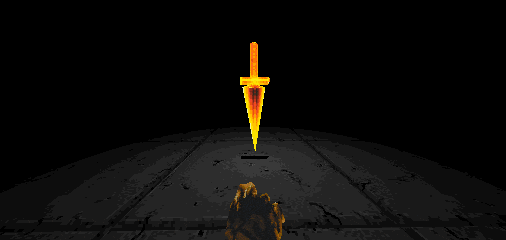
I have a confession to make. Like many of you reading this, I have a list of games that I’ve been meaning play for years. I have way too many games on Steam, and a stack of cases sitting next to my TV. Close to five hundred games now. Maybe more. It makes me feel guilty. I haven’t touched 90% of them in one way or another. I need to fix that. So this week, I dug deep into my backlog and pulled out a game. I want to play all of them; I’ve just never had the chance. Now’s the time.
When I talk about games, the idea of complexity frequently comes up. The complexity of a game’s systems or story or characters often directly correlates to the level of quality that we assign to that game. As consumers, we want a game that we can sink our teeth into, pour dozens of hours of our time into as we get to know the characters and slowly master the systems. Then we can just leave it by the wayside while we find the next open world RPG to obsess over for a few months. It is why we love games like Dark Souls, ARMA, Counter-Strike, and DOTA.
The Backlog - Risk of Rain
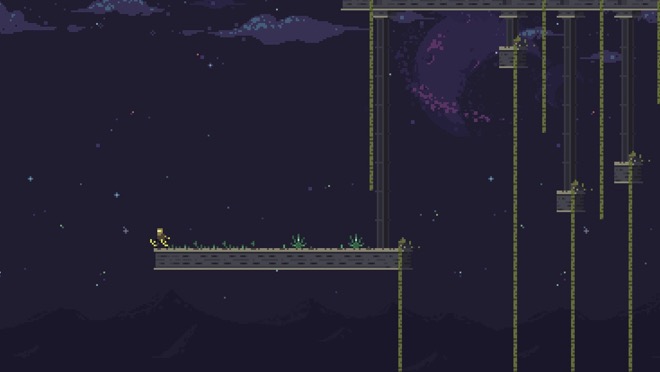
I have a confession to make. Like many of you reading this, I have a list of games that I’ve been meaning play for years. I have way too many games on Steam, and a stack of cases sitting next to my TV. Close to five hundred games now. Maybe more. It makes me feel guilty. I haven’t touched 90% of them in one way or another. I need to fix that. So this week, I dug deep into my backlog and pulled out a game. I want to play all of them; I’ve just never had the chance. Now’s the time.
With the announcement of the now 3D sequel, there is no time like the present to jump back into Risk of Rain, Happo’s side-scrolling roguelike. You take control of one of a cast of high-powered characters, each with their own special attributes, from the simple Commando, to the quick and lethal Huntress, or the careful Sniper. And while it is technically a roguelike, the levels themselves follow a predictable format. Every one of the first four levels is a choice between two separate maps, each with two, slightly different, versions. So if you play half a dozen games or so, you’ve seen all of the level variety that there is to see.
Prey - Review
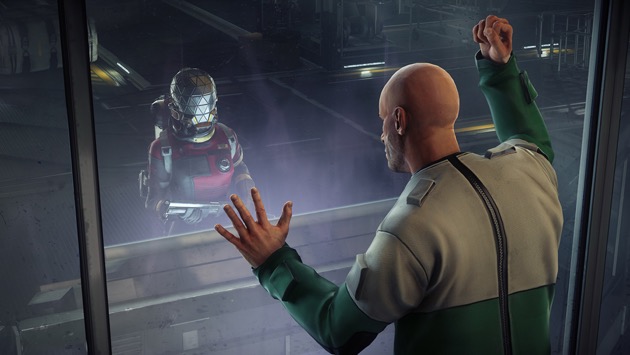
I loved the original Prey, as there was something about the science-fiction shooter that just clicked with me. It was weird, wacky, and broke new ground with its gameplay mechanics while at the same time being something very familiar. And while the reboot is something completely different, separated entirely from the original title, it does evoke many of those same feelings within me.
Bethesda's Review Policy
Much has already been said about Bethesda’s decision last year to stop sending out early review copies of their games to let “everyone, including those in the media, experience our games at the same time.” It is bad for many people, like those behind large websites, but most importantly it affects the consumers and how much information they have when they go to the store to pick out a product. It does actually benefit one other group besides Bethesda: small sites like ours that would never receive these copies in the first place. I’m not a fan of this policy by any means, but it allows me to sit on the same playing field as a writer for IGN, Polygon, Kotaku, or others.
When Dishonored 2 came out, I got it the same day that everyone else did. I was able to play through it twice that weekend, and four days later I published my review. I managed to beat a lot of major publications to press (due in part to my ability to focus on one review instead of many things at once), and while being able to do this did benefit our site, letting us see a tangible traffic boost from it, it had no way for me to help those people that wanted to buy the game on launch day.
We don’t get many pre-release copies of games at this point. Most of our reviews come one to two weeks after a game has launched, and are aimed at the smaller group of players who are waiting to buy a game. But a large portion of a game’s sales happen launch or in the week following, and we cannot help these people. Traditionally, this is where larger outlets have been able to come in with Day One or pre-release reviews based off of early copies provided by the publisher. This lets Day One purchasers make informed decisions about how to spend their money and if the new game is worth it. Read More…
The Backlog – S.T.A.L.K.E.R. : Clear Sky
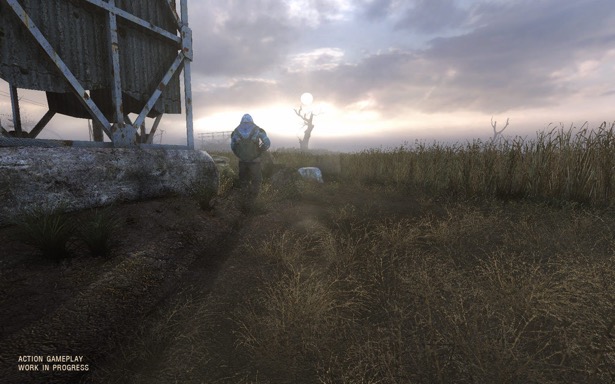
I have a confession to make. Like many of you reading this, I have a list of games that I’ve been meaning play for years. I have way too many games on Steam, and a stack of cases sitting next to my TV. Close to five hundred games now. Maybe more. It makes me feel guilty. I haven’t touched 90% of them in one way or another. I need to fix that. So this week, I dug deep into my backlog and pulled out a game. I want to play all of them; I’ve just never had the chance. Now’s the time.
There always been a big deal made out of hard games. To play and beat one was to somehow prove that you are better than more “normal” players, who somehow couldn’t handle the difficulty. The oft derided “casual” gamers speak to this phenomenon. Every time that someone picks up a copy of Dark Souls, a forum user somewhere tells you to “git gud”. But often the games that we idolize for their difficulty really aren’t that hard. S.T.A.L.K.E.R is.
Living Life Down the Barrel of a Gun
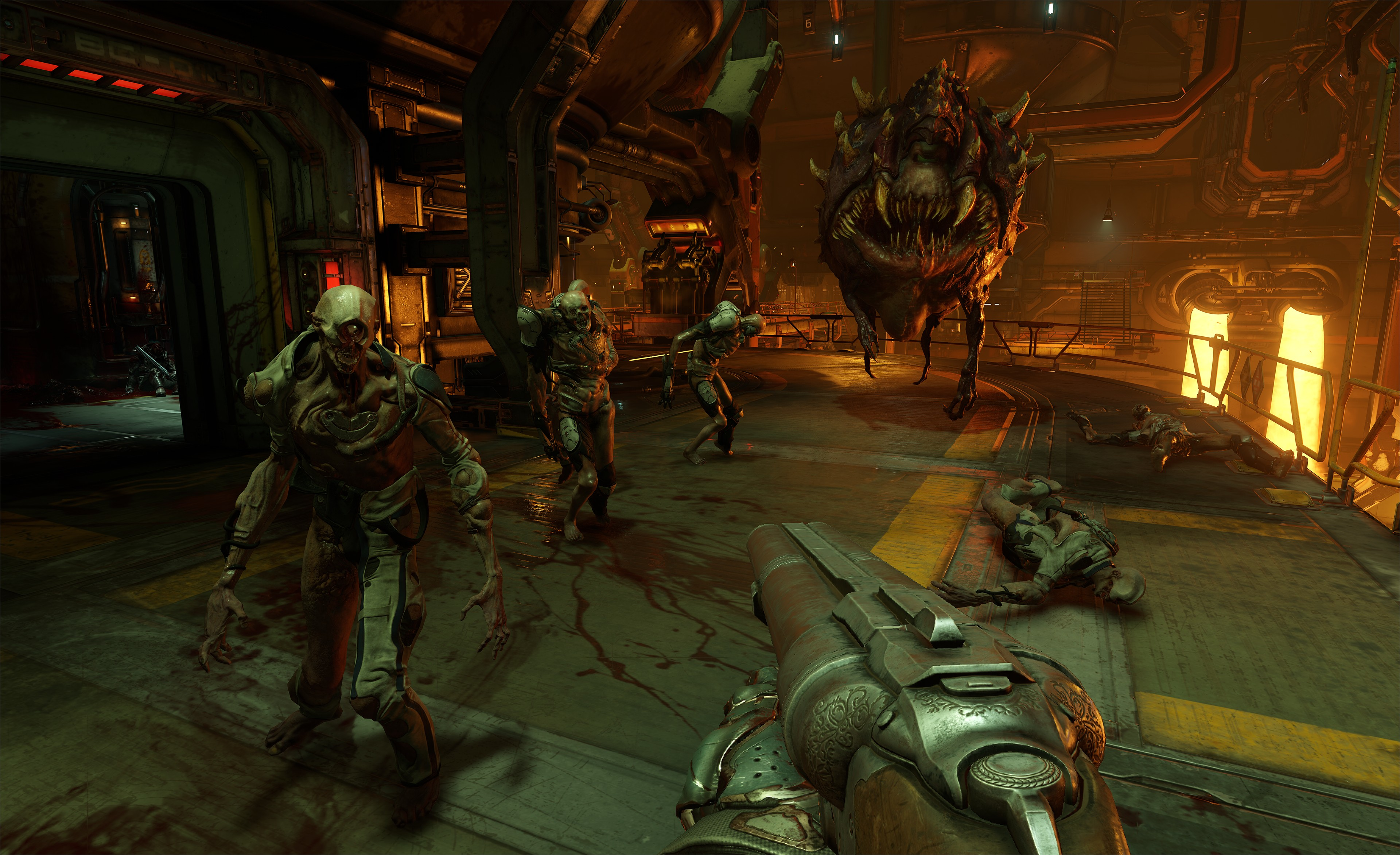
For all of the broad range of experiences that games can offer to us, the actual ways in which we are allowed to interact with them is rather limited. Most game screens look remarkably similar from a UI point of view. There is some sort of health bar, possibly a map or objective indicator in one corner, maybe a crosshair in the center of the screen, but invariably, the bottom right corner of the screen is almost always taken up by a gun. There are a few games that don’t follow this, but in the mainstream, first-person games that don’t shove a gun into your hands are the vast minority. And if your hands are filled with a gun, they have a knife, or a sword, or a bow, your weapon is offscreen, waiting to be pulled up with a single button press, aching to strike out at someone.
Sniper: Ghost Warrior 3 - Review
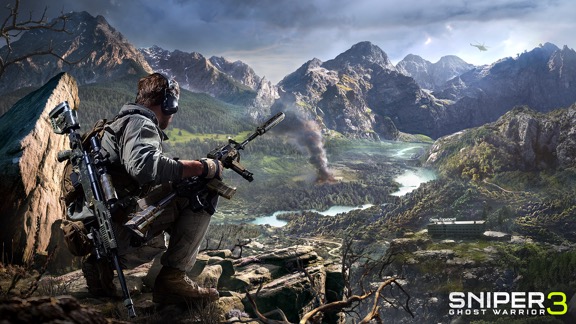
Sniper: Ghost Warrior 3 has one thing going for it. The world isn’t engaging, the characters are lackluster, the story is cookie cutter, but you have a rifle, and an uncanny ability to shoot people in the face from very far away. And that is what you do. Start a mission, mark targets, and snipe people. Wash, rinse, and repeat. It isn’t a bad system so much as it is a well-trodden and forgettable one, but luckily the novelty of shooting people in the face with high-powered rifles from hundreds of meters away lasted a while for me.
Twitch, Youtube, and "New Media"
The online landscape has shifted drastically over the course of the last five years. Websites and blogs used to be king, with dedicated reader bases coming back day after day to read the newest posts. There was a golden period of growth where anyone could make a website, and if they were dedicated, it would probably do pretty well. Coverage of games was done extensively through written articles, blog posts, and reviews, and there was a stable, if slightly adversarial, relationship between these companies and the companies that made games. Sites would get early review copies of games, access to developers for interviews, or in-depth press kits to help prepare coverage. In return, websites agreed to not post coverage of these titles until an agreed upon date. An equilibrium was reached.
Then YouTube came along and changed things. By virtue of its audience, content creators on YouTube relied on heavily edited videos, showing only the most exciting moments of whatever they were talking about. The massive Let’s Play community grouped around different games, and audiences had truly immense amounts of content at their fingertips. Search the name of the game, and they can find dozens of highly edited, exciting videos making it look to be fun, or small communities of super fans religiously playing and dissecting the game for years afterwards. You can see it with Counter Strike, or League of Legends, or DOTA, or Overwatch.
Companies noticed, and they took advantage of it. Many of these videos bordered on advertisements already in how they catered to audiences to draw them and in keep them interested. YouTube content creators live and die by audience retention, so they want to show viewers that they can come back day after day to consistently exciting and engaging content. Companies started reaching out to these channels, sending them free promotional materials or copies of the game, and any mention of this becomes positive advertising for the company. If someone receives a special Skyrim hat from Bethesda and shows it off on their YouTube channel because they feel special, it alters the appearance of Bethesda in the mind of consumers, changing them from a faceless corporate entity into an attentive and caring company that looks after its fans. They don’t have to ask for positive press from the creators, because any mention of them is good.
Compare this to the way in which video game websites handle the same situation. People don’t want to read an article about a special Skyrim hat that the author got from Bethesda, because it reads like an advertisement. Swag, or promotional materials, have been a part of the games industry, and indeed many others, for a long time. But unless the readers can get the exact same item, they don’t care. They view the pieces published by the website to be the statements of that website, regardless of who wrote them. There is less of a connection between the reader and the writer in most cases, and with this personal connection lost, appeals to the consumers work differently. Websites (outside of fan websites) don’t care about swag, because the audience doesn’t care about swag.
As YouTube has gotten larger, smaller content creators have slowly been getting crowded out. The platform enormously favors those with the time and the budget to produce consistent, daily, high quality, ten-minute plus videos, and the number of channels that can do this is low, in the grand scheme of things. Combine this with the too stringent DMCA policies that make it much too easy for a video to be taken down or removed from monetization, and many creators have been forced to diversify.
Twitch was there to pick up the pieces. Communities are only reinforced on Twitch, which shows categorizes livestreams by what games are being played while highlighting high profile streamers. However, on Twitch, channels did not have the benefit of editing to support their content, and personality reigned supreme. Tight knit communities form around streamers as they interact with their audience every single day to the point where a relationship is built. And companies have taken advantage of this. If a streamer is allowed to stream a game early, they are given a sense of exclusivity, and an implicit recommendation of the game from them to their fans. Anything that the company does for the streamer, from joining them on stream to sending them packages of promotional material, brings that company into the community.
There is nothing wrong with marketing or advertisement. It is how content creators can survive, and it is an integral part of the development and release of a game. It is a very necessary force. Print and online media have a whole host of ethical questions relating to companies that are being covered, ostensibly impartially, while these outlets are simultaneously running advertisements for these games. It’s a conflict of interest, and one that needs to be tackled and disclosed.
The issue with marketing comes when it stops appearing as marketing, when companies are manipulating fans and creators into giving them good press without revealing it, when content creators are being paid to create promotional videos without disclosing these facts, when the influence cannot be seen.
So where does that leave sites like ours, sites that don’t exactly fit into any of these molds? How do they survive? Do they attempt to extend their reach, diversify into different areas, start advertising the products that they are covering, or do they hunker down in their niche, trying to carve out a spot? The second is, without a doubt, more difficult. Staying truly independent is a challenge that all websites will face, and whether or not to stay that way is a question that every site will have to answer at some point during its lifespan. It is a question that we struggle with every day, and it is one that we eventually hope to answer.
____________________________________________

Tom has been writing about media since he was a senior in high school. He likes long walks on the beach, dark liquor, and when characters reload guns in action movies.
You Might Also Like:
Situational Invincibility and How it is Ruining Action MoviesExpectations vs Reality
What is Death of the Critic?
_____________________________________________
The Backlog - NOT A HERO
I have a confession to make. Like many of you reading this, I have a list of games that I’ve been meaning play for years. I have way too many games on Steam, and a stack of cases sitting next to my TV. Close to five hundred games now. Maybe more. It makes me feel guilty. I haven’t touched 90% of them in one way or another. I need to fix that. So this week, I dug deep into my backlog and pulled out a game. I want to play all of them; I’ve just never had the chance. Now’s the time.
Devolver Digital has had a pretty outstanding publishing record, at least in my opinion. They tend to attach themselves to some rather interesting titles, and that was what initially drew me towards NOT A HERO. And I’m glad that I decided to check it out. Read More…
Sequels and Reviews
Earlier this week, we publish an article about sequels and how they are viewed in relation to their preceding works, and we wanted to take the time to clarify our position on how we address this concern when writing a review for a sequel. While we do our best to look at each work on its own merits, we cannot discount significant advances or steps back compared to other works within the same franchise. Read More…
The Backlog - Homefront: The Revolution
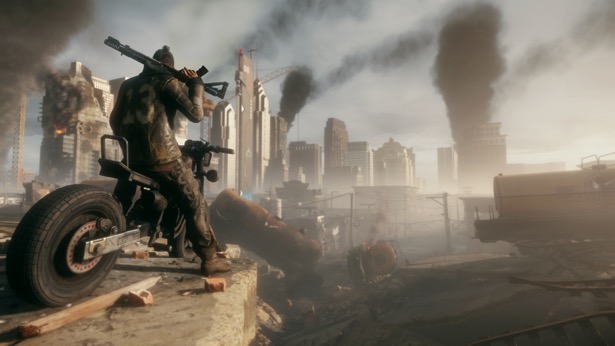
I have a confession to make. Like many of you reading this, I have a list of games that I’ve been meaning play for years. I have way too many games on Steam, and a stack of cases sitting next to my TV. Close to five hundred games now. Maybe more. It makes me feel guilty. I haven’t touched 90% of them in one way or another. I need to fix that. So this week, I dug deep into my backlog and pulled out a game. I want to play all of them; I’ve just never had the chance. Now’s the time.
The first Homefront was forgotten rather quickly, another in a long line of generic modern shooters that everyone forgot about. I, like many others, thought that it would be a forgotten piece of video game history, a curiosity that somehow got made. So, when it was revived as a semi-open world, first-person shooter, I was baffled, to say the least.
Mass Effect: Andromeda - Review

Mass Effect: Andromeda put itself in a rather unfortunate position before it was even released. It is a follow-up to one of the best franchises of the last generation that tied everything up rather neatly. Bioware has fallen out of favor in recent years, and after a series of rocky previews, Andromeda finally came out. Plagued with issues at launch, Andromeda is not a great game. It isn’t bad, but in many ways, it highlights a lot of the issues that I have with contemporary video games, while taking massive steps backwards in the franchise. It is painfully average and fails to trigger those same emotions that the earlier titles were so good at tugging on.
Updates and Reviews
When we are reviewing a game, we have a unique issue that we don’t encounter with any other type of media. When a game launches, rarely will it stay in the exact same state over the coming days, weeks, months, or even years that it will be in the public. It will be updated and changed over time. Sometimes these updates are small: balance tweaks to multiplayer, text fixes, or subtle adjustments that no one will ever really see. But on the other hand, some alter graphics, story, gameplay, or more. At the root is this idea: patches are fixing something wrong with the game, no matter how big it may be. So how do we deal with this as reviewers. Read More…
The Backlog - SUPERHOT

I have a confession to make. Like many of you reading this, I have a list of games that I’ve been meaning play for years. I have way too many games on Steam, and a stack of cases sitting next to my TV. Close to five hundred games now. Maybe more. It makes me feel guilty. I haven’t touched 90% of them in one way or another. I need to fix that. So this week, I dug deep into my backlog and pulled out a game. I want to play all of them; I’ve just never had the chance. Now’s the time.
Humor in Games
Humor is really hard to nail in games. Its either hit or miss, and when it misses, it can be bad. There are a few games that manage to absolutely nail it (Day of the Tentacle, I’m looking at you) but so many more just absolutely flop, and in doing so, manage to pull you out of the experience entirely.
In the last month I’ve played two big games that have been really bad about it. Ghost Recon: Wildlands and Mass Effect: Andromeda, which both tried to work semi-edgy humor in alongside their more serious stories to varying levels of success. Every time I heard one of these bad jokes, it pulled me out, actively reminding me that I was playing games, poorly written ones at that. Read More…
The Backlog - Don't Starve
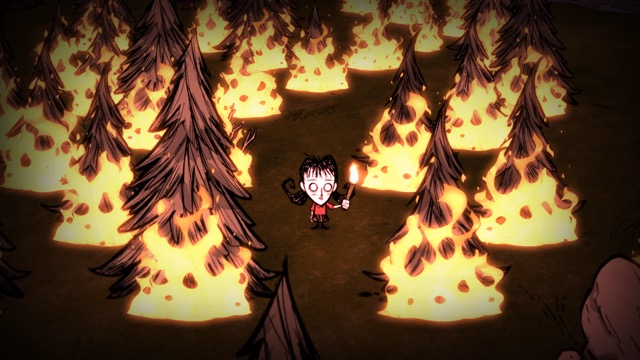
I have a confession to make. Like many of you reading this, I have a list of games that I’ve been meaning play for years. I have way too many games on Steam, and a stack of cases sitting next to my TV. Close to five hundred games now. Maybe more. It makes me feel guilty. I haven’t touched 90% of them in one way or another. I need to fix that. So this week, I dug deep into my backlog and pulled out a game. I want to play all of them; I’ve just never had the chance. Now’s the time.
Don’t Starve is a deceptively simple game. At first it seems like you just need to gather food and survive, but the deeper that you get into the game, the more complex systems begin to reveal themselves. There is magic and technology, cultivation and crafting, fearsome enemies hiding in dark places. And in some ways, the game is better for obscuring these systems, letting you discover the systems on your own and adding entire other layers of depth to the systems.
Future Unfolding – Review

Future Unfolding is a hard game to describe. A philosophical, top down exploration of a gorgeous world as you try to figure out what exactly is going on. You are dropped in with basically nothing, and what story is there is confusing to say the least. But there is something magical about wandering through the world here, almost discovering new things and slowly inching your way forward on this quasi-vision quest that you’ve found yourself in the middle of.
The Uncanny Valley
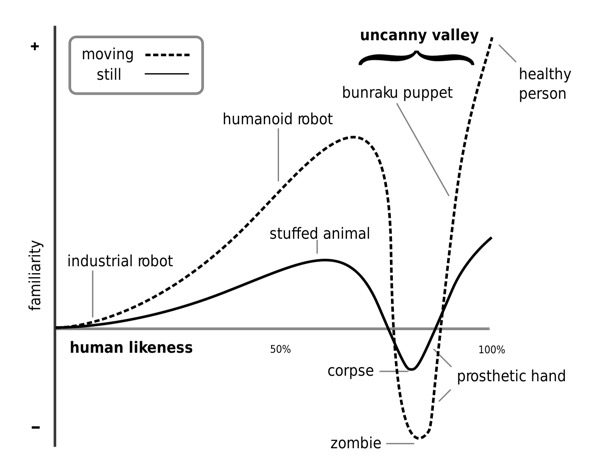
Mass Effect: Andromeda has been catching a lot of flak for its facial animations in the past few days, and by all rights it should be. They are off in a fundamental way that just makes them creepy. For the most part they are ok, but for a few characters (like lead Sarah Ryder) the animation quality is simply terrible. Any conversations about animations eventually drift into discussions about the uncanny valley. But what exactly is the uncanny valley and how does it affect animation, both in video games and otherwise?
The Backlog – Tower of Guns
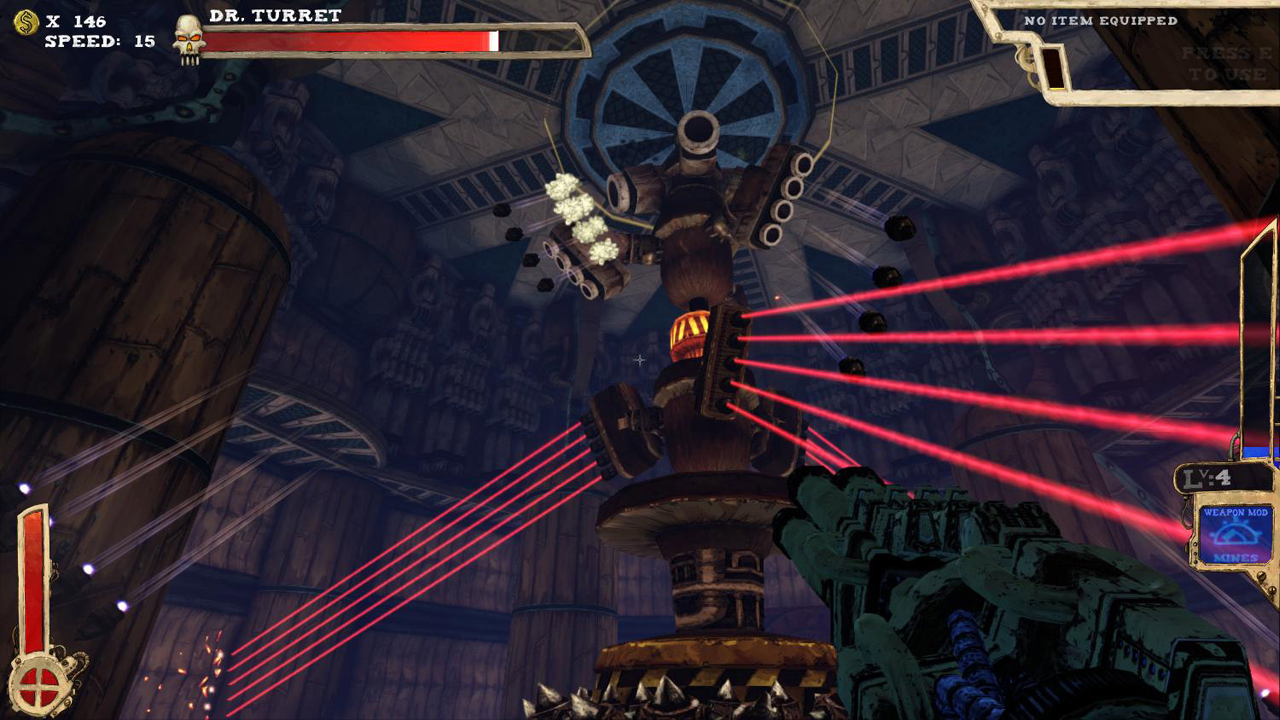
I have a confession to make. Like many of you reading this, I have a list of games that I’ve been meaning play for years. I have way too many games on Steam, and a stack of cases sitting next to my TV. Close to five hundred games now. Maybe more. It makes me feel guilty. I haven’t touched 90% of them in one way or another. I need to fix that. So this week, I dug deep into my backlog and pulled out a game. I want to play all of them; I’ve just never had the chance. Now’s the time.
With a name like this, how could you not want to try this game. Tower of Guns is a simple first-person shooter heavily inspired by Quake and other fast-paced, movement heavy, arcade shooters. Part bullet hell, part roguelike, it has a somewhat novel take on the genre that is unfortunately held back by its limited variety.
Ghost Recon: Wildlands – Review
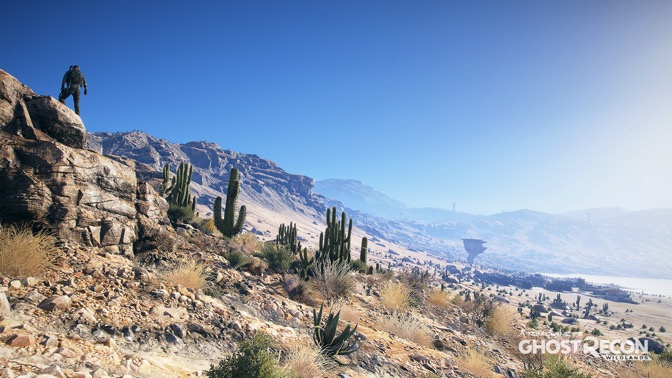
There are so many things that should have been great about Ghost Recon: Wildlands. Having a four-player co-op game set in an absolutely massive open world with free-form mission structure and tactics based combat? It sounds like the perfect storm, a game to suck up all of your time. And while it can very much eat up your time, the way it does feels cheap and unearned. There was too much to do and no real reason to do any of it, and more than once I found myself questioning why I was even playing.
The Captivating Simplicity of Idle Games
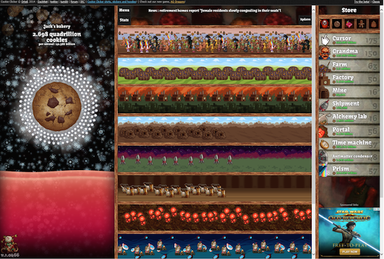
Games are built around feedback loops, obscured behind complex systems and mechanics, designed to draw us in and keep us there. We want to play the games so we can level up, become stronger, defeat new enemies, and get more and better loot. We play to get better and more efficient at playing, and in the last few years a new genre of games has stripped away this veneer and laid the inner workings bare for us to explore.
The Backlog - Sleeping Dogs
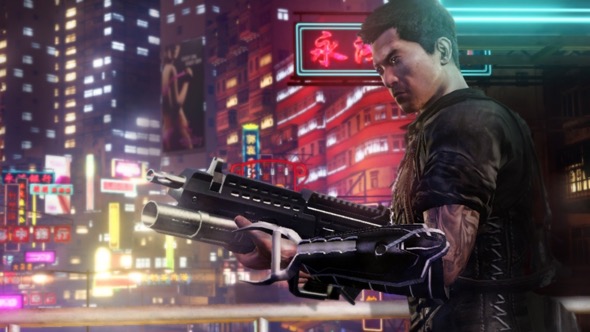
I have a confession to make. Like many of you reading this, I have a list of games that I’ve been meaning play for years. I have way too many games on Steam, and a stack of cases sitting next to my TV. Close to five hundred games now. Maybe more. It makes me feel guilty. I haven’t touched 90% of them in one way or another. I need to fix that. So this week, I dug deep into my backlog and pulled out a game. I want to play all of them; I’ve just never had the chance. Now’s the time.
I’ve made my feelings known about open-world games before, but I just can’t stop playing them. It has been a few years since Sleeping Dogs came out, which still surprises me given the troubled lineage of the title. It was warmly received, finally giving a GTA-style open-world game a satisfying combat system. It made the game fun to play in a way that few open-world titles manage to be. By making combat fun, it made the inherent experience of playing the game better.
The Backlog - Uncharted 4: A Thief's End
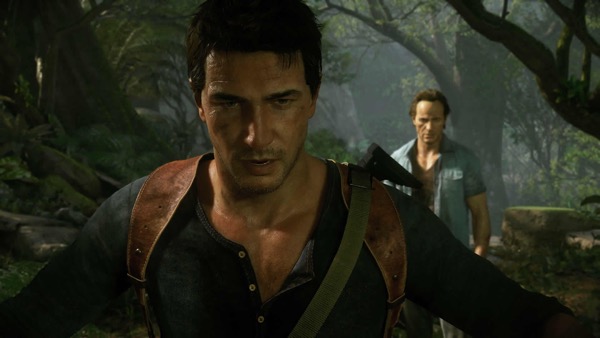
It’s way too easy to fall way too far behind on games. They simply ask for too much of your time and money to be able to keep up with all the ones that look interesting. Thankfully, almost entirely due to online sales, eventually you’re able to get most games for a five dollar bill and an afternoon of free time.
Uncharted 4: A Thief’s End is the best entry in the already great Uncharted series.
In nearly every way, Uncharted 4 improves upon the previous iterations; the combat feels better and makes you feel more like an action hero than ever, the “stealth” works, which is miles above the last few games, the puzzles are by and large very intuitive, almost never becoming frustrating, and the story is very compelling even though it misses the hint of the supernatural that all the previous games had.
The Backlog - Super Time Force
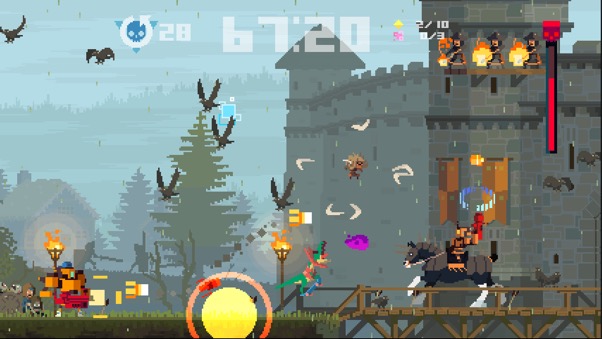
I have a confession to make. Like many of you reading this, I have a list of games that I’ve been meaning play for years. I have way too many games on Steam, and a stack of cases sitting next to my TV. Close to five hundred games now. Maybe more. It makes me feel guilty. I haven’t touched 90% of them in one way or another. I need to fix that. So this week, I dug deep into my backlog and pulled out a game. I want to play all of them; I’ve just never had the chance. Now’s the time.
Sometimes all a game has is a good idea, and the one behind Super Time Force is unquestionably good. It is a side scrolling, bullet hell shooter a la Contra, but they remixed classic concept by letting you rewind time and use previous versions of your character (think ghosts from a racing game) to help you progress. Admittedly, this concept is hard to comprehend without seeing it in action. It lets you rewind time to try a challenge over and over again, each time becoming easier by virtue of having additional help from your ghosts.
Do the Right Thing
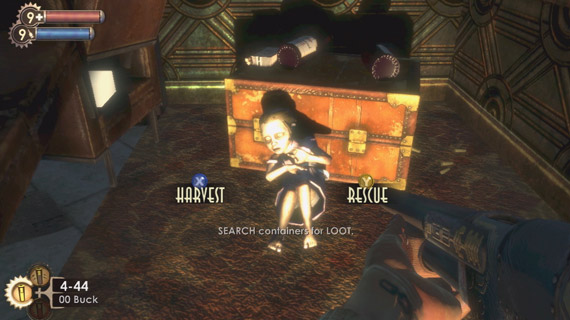
Moral choices have long been a part of gaming. They offer the chance for a player to leave their mark on a game, affecting the outcome and changing the course of a game. These binary, good vs. evil choices are so often structured in the same way. Evil choices are flashy and violent, giving you a small amount of short term gain in return for a karmic hit. Good choices then should be the opposite, giving up personal gain in exchange for doing the right thing. But this isn’t how they manifest. You are almost always rewarded for doing the “good” thing, and frequently the long term gains outweigh the gains from evil. The only real difference ends up being different achievements, or possibly some different dialogue at the end of the game.
The Backlog - Dead Rising 4
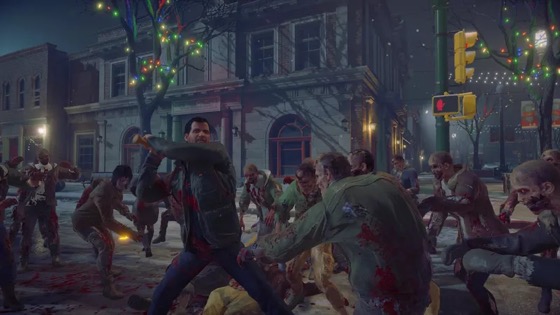
I have a confession to make. Like many of you reading this, I have a list of games that I’ve been meaning play for years. I have way too many games on Steam, and a stack of cases sitting next to my TV. Close to five hundred games now. Maybe more. It makes me feel guilty. I haven’t touched 90% of them in one way or another. I need to fix that. So this week, I dug deep into my backlog and pulled out a game. I want to play all of them; I’ve just never had the chance. Now’s the time.
Zombies might be a bit overdone the days, but the Dead Rising series has always brought its own unique look and feel to the genre. They are dumb, but in the best sense of the word, and no other game quite matches the amount of action on screen at one time. When you boil them down, they are essentially Musou games, where you run around and slap zombies with increasingly ridiculous weapons. In this sense, Dead Rising 4 definitely delivers. While it does tone down the number of weapons from 3, it has a world that is big and fun to run around in, and the return of Frank West brings the franchise back to its roots, in more ways than one.
Ghost Recon: Wildlands - First Impressions
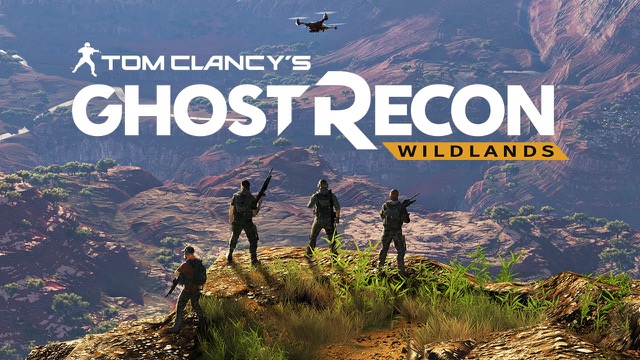
The beta has ended and in one short week Ghost Recon: Wildlands will be in everyone’s hands. So we sat down this weekend and tore through all of the content that the beta had to offer, both solo, and together in co-op. There was a huge amountof content to be found, and more than a few baffling decisions made. I don’t know if it feels like a Ghost Recon game, but it was damn fun. You can clearly see the influence that other open world games have had on its design. It’s an amalgamation of different ideas and tones that come together surprisingly well.
Loot Boxes
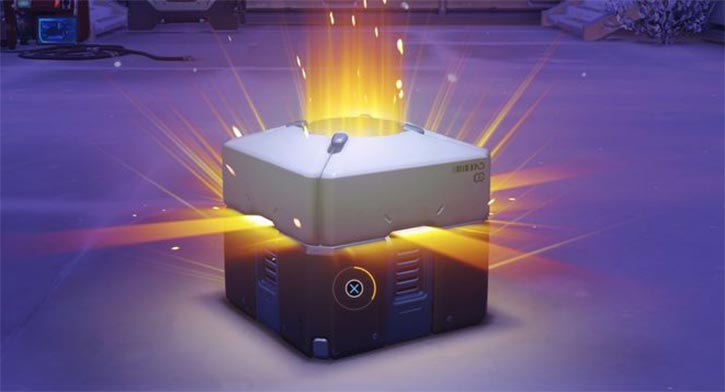
It’s notable now when a game doesn’t try to incorporate some form of micro transactions into their multiplayer modes to extend their revenue streams out for as long as possible. This speaks to an attitude where companies are competing to be the single game that players buy, keeping them in their ecosystem from as long as possible, and they’ve taken many lessons from the massively popular free-to-play mobile games that dominate the handheld marketplace. But there is a juggernaut that many people ignore. Valve’s moves towards long-term monetization of their stable of multiplayer games has changed the video game industry tremendously, adding a virtual slot machine mechanic to most large multiplayer games that come out. While the gaming community has poked fun at the “hat simulators” for years, we have seemingly ignored the way the crate and key mechanics of Valve games has created this landscape.
The Backlog - Child of Light
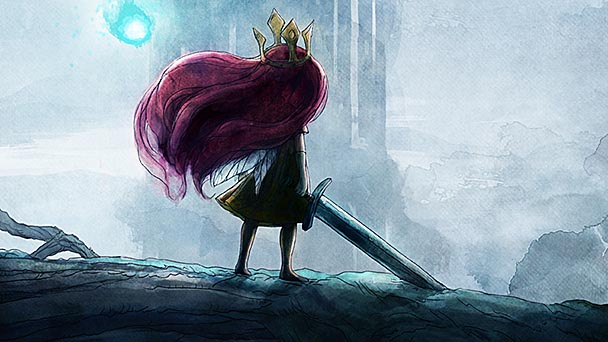
I have a confession to make. Like many of you reading this, I have a list of games that I’ve been meaning play for years. I have way too many games on Steam, and a stack of cases sitting next to my TV. Close to five hundred games now. Maybe more. It makes me feel guilty. I haven’t touched 90% of them in one way or another. I need to fix that. So this week, I dug deep into my backlog and pulled out a game. I want to play all of them; I’ve just never had the chance. Now’s the time.
Child of Light is a great idea trapped in a prison of its own mechanics. It has a compelling world, gorgeous art and character design, a great story, and an interesting gimmick. But it just is not fun to play. I felt like I was forcing myself through battle after repetitive battle until I was doing everything I could to avoid these encounters, which in turn made every subsequent fight that I was forced into more and more punishing. I love being in the world, exploring every nook and cranny that I could find and meeting new characters to rhyme with, but the actual core combat gameplay was boring, unbalanced, and generally not fun.
The Backlog - Crimson Dragon
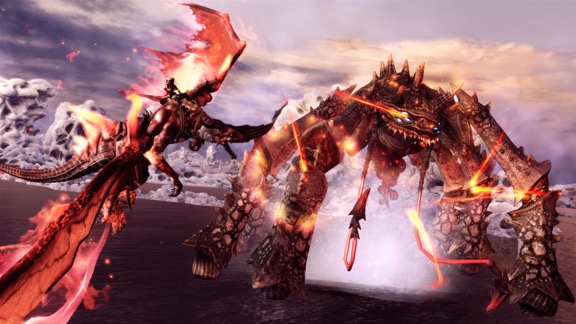
I have a confession to make. Like many of you reading this, I have a list of games that I’ve been meaning play for years. I have way too many games on Steam, and a stack of cases sitting next to my TV. Close to five hundred games now. Maybe more. It makes me feel guilty. I haven’t touched 90% of them in one way or another. I need to fix that. So this week, I dug deep into my backlog and pulled out a game. I want to play all of them; I’ve just never had the chance. Now’s the time.
The launch of the Xbox One was a rather forgettable one. Really the only title that has managed to stand the test of time was Dead Rising 3, and everything else was left by the wayside. But that doesn’t mean that the other titles released then ceased to exist. Crimson Dragon is a simple game, and in that simplicity, there is some fun to be found. However, unlike more memorable downloadable titles, it fails to grab that crucial X factor that keeps you coming back for more.
Resident Evil 7 - Review
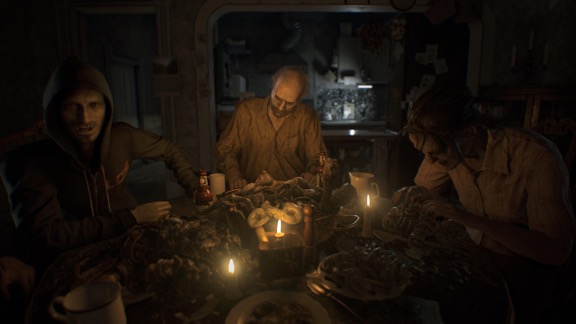
Despite having had more than my fair share of dumb fun in the last few Resident Evil games, I had completely lost hope that the series would ever find its way back to atmospheric horror. Thankfully, however, it seems that the critical and commercial failure of Resident Evil 6 has led Capcom to return to the series’ roots.
That is, in all senses, what Resident Evil 7 is: a returning home for the series.
Super Mario Odyssey
< Super Mario Odyssey continues to baffle me. I don’t always fully understand the decisions that Nintendo makes, but somehow they generally work out for them. So when they released a trailer for the new Mario game for the next real generation of Nintendo consoles, I was actually excited in a way that I don’t usually get about Nintendo products. This is how we got Mario 64 and Galaxy, and the entirely-less-cool Sunshine. New Nintendo consoles ideally drive innovation in gameplay and graphics, so the first real new 3D Mario in years enticed me. Read More…
The Backlog - Geometry Wars 3: Dimensions
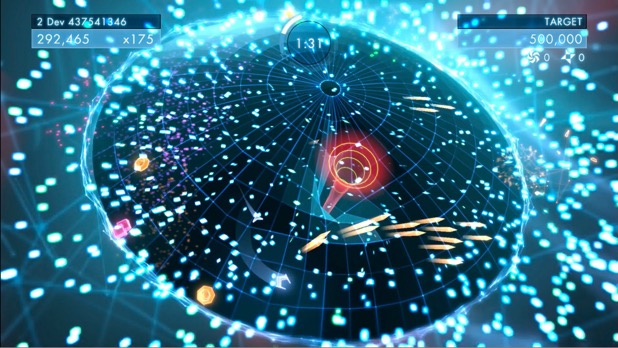
I have a confession to make. Like many of you reading this, I have a list of games that I’ve been meaning play for years. I have way too many games on Steam, and a stack of cases sitting next to my TV. Close to five hundred games now. Maybe more. It makes me feel guilty. I haven’t touched 90% of them in one way or another. I need to fix that. So this week, I dug deep into my backlog and pulled out a game. I want to play all of them; I’ve just never had the chance. Now’s the time.
In many ways, Geometry Wars 2 was a perfect game. Just enough content, quick and responsive gameplay, loads of challenge, and enough replayability to last a lifetime. So I was more than a little confused when they announced that they were making a sequel and adding a campaign. It seemed like a game that didn’t necessarily need to be made, a decision based purely off of marketing and predicted sales numbers on a graph over any real push from fans. I bought it when it was released, but after a few quick levels, I put it down and promptly forgot about it completely.
Gun Porn - Our Fascination with the Firearm
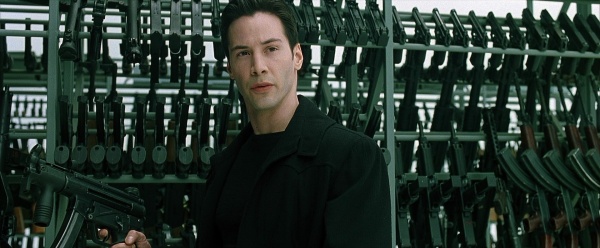
We love guns. Big and small. As long as it goes bang, we want to be able to sit and watch. Guns are ingrained in the American culture and they fill our media to the brim. It is hard to play a game or go to the movie theater without seeing a few of them. It has gotten to the point where the depiction of guns in movie and games crosses the boundary into the real world. You can see it in gunstores across the country, where teenagers stare at racks of rifles and pistols, lusting after the high-tech weaponry like a dog with a bone.
Scalebound and Platinum

As many of you already know, a few weeks ago, Microsoft cancelled Scalebound, a title that at first had me united until its disastrous E3 showing this last year that made the game look like the worst kind of generic action, calling back unfortunate memories of Lost Planet as I watched. I had a moment after the announcement of the cancellation where I realized something. The Platinum Games name doesn’t really mean much to me anymore. And of course I’ll offer this disclaimer that we haven’t yet seen Nier: Automata and I truly hope that it blows me out of the water and makes this whole post worthless.
The Backlog - Wolfenstein: The New Order
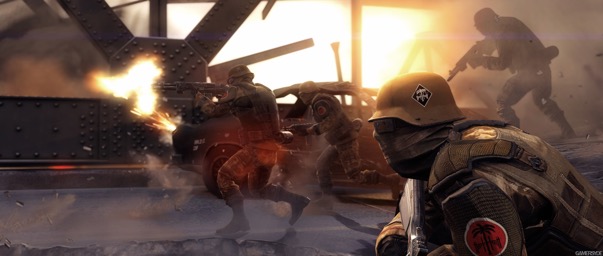
It’s way too easy to fall way too far behind on games. They simply ask for too much of your time and money to be able to keep up with all the ones that look interesting. Thankfully, almost entirely due to online sales, eventually you’re able to get most games for a five dollar bill and an afternoon of free time.
Wolfenstein: The New Order is about 10 hours of ups and downs.
I’ve been wanting to play Wolfenstein: The New Order since its initial release, and as many complaints as I’ve had about the experience, I genuinely enjoyed my time with the game.
The Backlog - Peggle 2
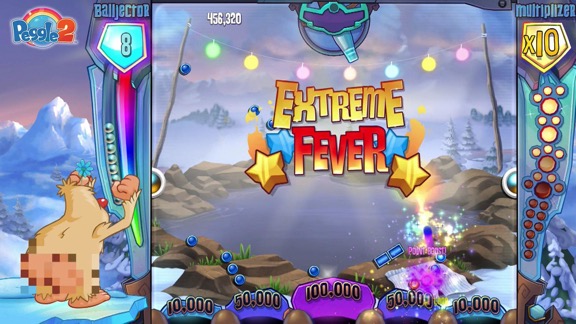
I have a confession to make. Like many of you reading this, I have a list of games that I’ve been meaning play for years. I have way too many games on Steam, and a stack of cases sitting next to my TV. Close to five hundred games now. Maybe more. It makes me feel guilty. I haven’t touched 90% of them in one way or another. I need to fix that. So this week, I dug deep into my backlog and pulled out a game. I want to play all of them; I’ve just never had the chance. Now’s the time.
There is something about the Peggle games that I have always loved. They are so simple, yet so amazingly satisfying and fun to play. The games have character in the purest sense of the word. And a few years back, I bought Peggle 2 on the day that it was launched. But somehow it quickly fell to the bottom of a very long stack of games that I’ve been trying to work through. It has been installed since then, just waiting for me to come back and finish what I started.
The Backlog - DOOM
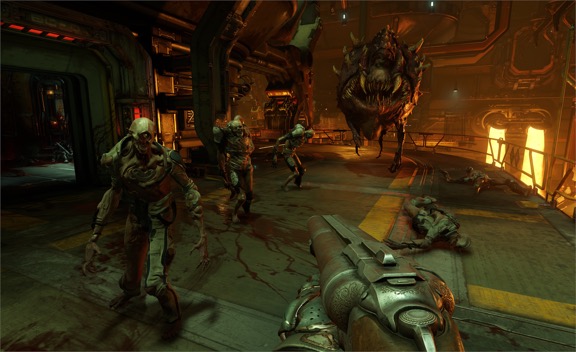
I have a confession to make. Like many of you reading this, I have a list of games that I’ve been meaning play for years. I have way too many games on Steam, and a stack of cases sitting next to my TV. Close to five hundred games now. Maybe more. It makes me feel guilty. I haven’t touched 90% of them in one way or another. I need to fix that. So this week, I dug deep into my backlog and pulled out a game. I want to play all of them; I’ve just never had the chance. Now’s the time.
I really wish I had played DOOM closer to when it came out. I had picked up a copy for my brother for Christmas and after getting a chance to try it out with my family, much to my mother’s horror, I knew I had to pick it up. In many ways, it is one of the best shooters that I’ve played in a long time. You shoot a lot of things in DOOM. It looks really cool, and it feels really good, and that’s kind of it. In the purest sense of the word, it is a game; you kill demons to unlock upgrades to kill demon faster.
Stardew Valley - Review
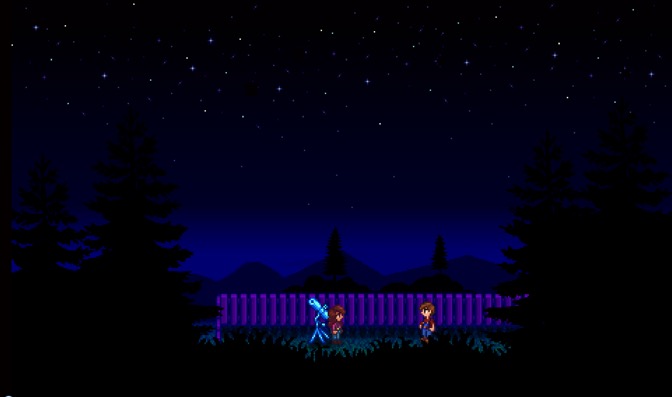
Stardew Valley is an addiction waiting to happen.
Coming from over a decade of experience with a wide variety of games, ranging from classic one-more-level platformers to prolific time sinks like Diablo and World of Warcraft, I can easily say that Stardew Valley has the most refined gameplay loop of any game I’ve ever played.
Violence
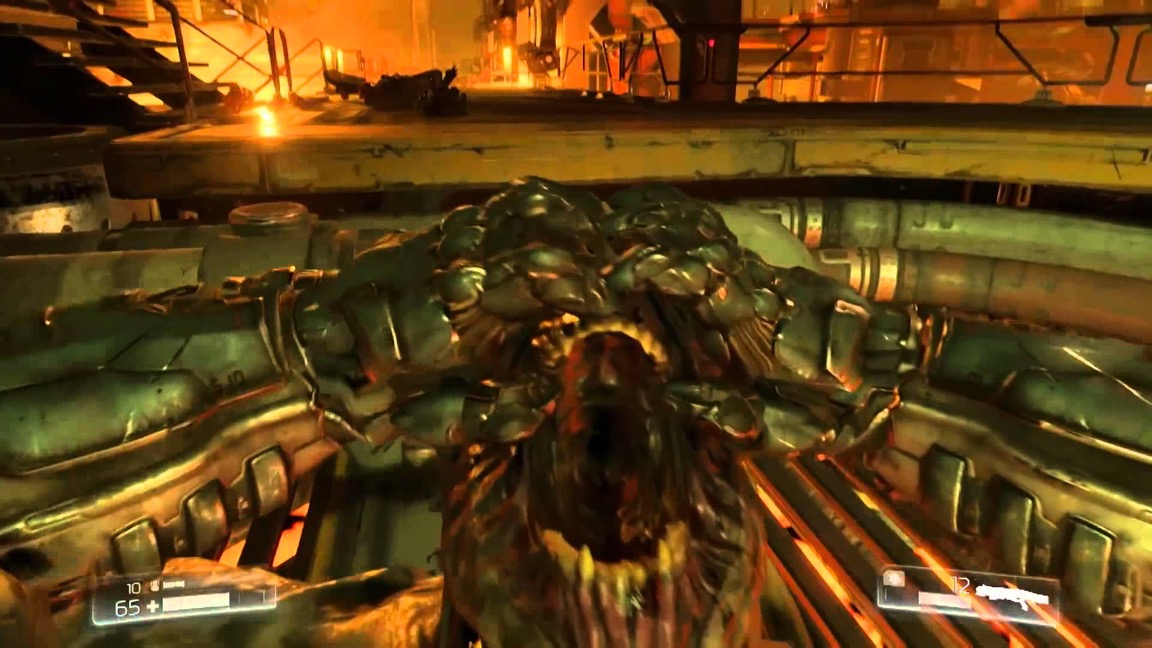
It is dark outside and a pair of headphones wrap around my head. I can’t hear my family, but I can see them standing next to me. On screen, I watch as my gloved fingers sink into the top of a demon’s skull and split it in half like an apple. My brother laughs, my mother gasps. I had gotten him DOOM for Christmas, and he insisted that I try it out on his new TV. My dad used to play the original with us when we were kids until our mom made him stop after one of us got too enthusiastic about the usage of a chainsaw.
The Backlog - Payday 2: The Heist
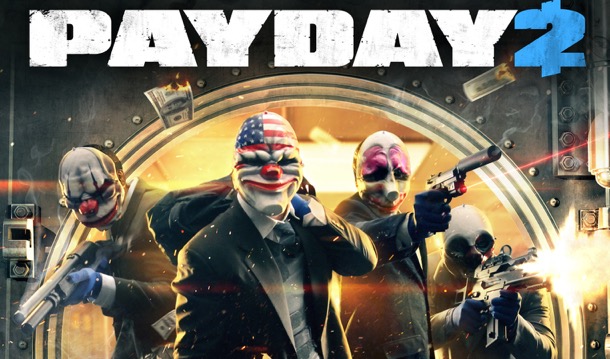
I have a confession to make. Like many of you reading this, I have a list of games that I’ve been meaning play for years. I have way too many games on Steam, and a stack of cases sitting next to my TV. Close to five hundred games now. Maybe more. It makes me feel guilty. I haven’t touched 90% of them in one way or another. I need to fix that. So this week, I dug deep into my backlog and pulled out a game. I want to play all of them; I’ve just never had the chance. Now’s the time.
I fell down a deep, dark hole this last week. For some reason, I found myself sitting down with Payday 2: The Heist. I probably should have been spending more time with my family, but instead I held “F” a lot as I picked open safety deposit boxes and got kicked out of matches for being inexperienced. There is a lot that I like about the game, but there is also a deep, dark hole at the center that I really, really hate.
Politics of Play - Games with an Agenda
Video games can be a powerful tool. They are unique in media in that they allow you to directly interact with the text in a way quite unlike anything else. And as time goes on, we are seeing games being leveraged in entirely different ways than we might have imagined when we first got our hands on the text adventures of the 1980’s. Instead of trying to make a game “fun”, creators are making games with messages. By allowing players to interact with the work in a meaningful way, the message carries so much more impact. Read More…
The Backlog - Receiver
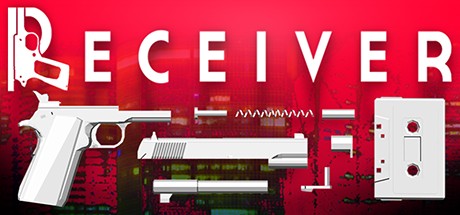
I have a confession to make. Like many of you reading this, I have a list of games that I’ve been meaning play for years. I have way too many games on Steam, and a stack of cases sitting next to my TV. Close to five hundred games now. Maybe more. It makes me feel guilty. I haven’t touched 90% of them in one way or another. I need to fix that. So this week, I dug deep into my backlog and pulled out a game. I want to play all of them; I’ve just never had the chance. Now’s the time.
It turns out that guns are more complex than video games make them out to be. You don’t just hold down the giggle switch until all the bullets kill all the bad guys. There are a few more steps to remember. Receiver tries to capture some of this complexity by putting you in control of every aspect of your handgun. You search a dark building scattered with lethal flying drones and automatic turrets that are ready to do their devastating duty on your flimsy body. Luckily, your enemies are as fragile as you are, and you have to survive while finding tapes that can tell you more about the reality that you have found yourself trapped in.
Dark Souls Without Difficulty
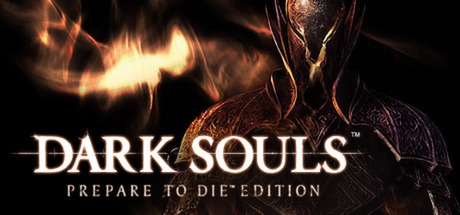
I love the Souls series. Over the years I’ve put a lot of hours into them and died a countless number of times, mostly by rolling off of cliffs. There is a lot to be praised about the game and the design, but somehow the conversation always centers on how difficult it is and how much you’ll die. It speaks to a certain attitude within the gaming community that praises “hardcore” games and decries “casual gamers.” Difficulty is king to many people and for that reason, the Souls series is frequently praised. If you can’t handle it, you just need to “get good” and deal with it. But what if you had to convince someone to play Dark Souls without ever mentioning its difficulty? How would that change our conversation about the game?
The Backlog - Viscera Cleanup Detail: Santa's Rampage

I have a confession to make. Like many of you reading this, I have a list of games that I’ve been meaning play for years. I have way too many games on Steam, and a stack of cases sitting next to my TV. Close to five hundred games now. Maybe more. It makes me feel guilty. I haven’t touched 90% of them in one way or another. I need to fix that. So this week, I dug deep into my backlog and pulled out a game. I want to play all of them; I’ve just never had the chance. Now’s the time.
Dying to Win - Death as a Gameplay Mechanic
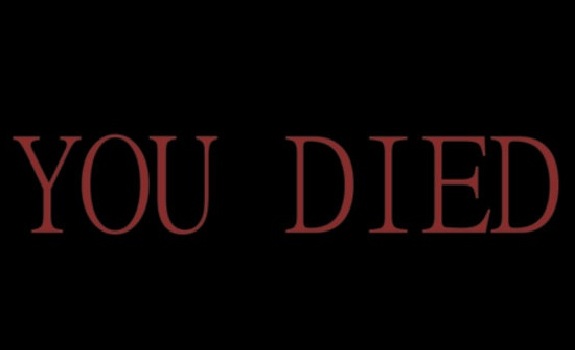
If you’ve been playing games for any period of time, you’ve likely died a lot. You’ve thrown yourself against the video game meat grinder and come out the other side. There are games almost built around the idea of death as a crucial part of the game and players treat their completion like a badge of honor. Dark Souls: Prepare to Die, Rogue Legacy, and so many more take death and turn it from an inconvenience into a mechanic. But on the other side you have games like Super Meat Boy or Bioshock, which do their best to make death as little of an inconvenience as possible, and making it a fun part of the game.
FEIST - Review
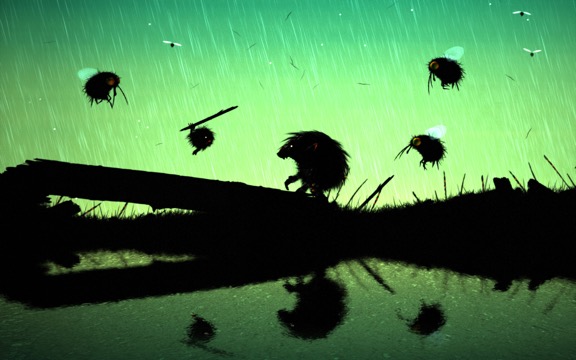
It is hard to look at this game and not immediately think of Limbo. In many ways it is an apt comparison to the 2010 sidescrolling platformer. It's a pseudo-3D, atmospheric world with freakish enemies and light physics puzzles, and walking through the world brought flashes of nostalgia to games past. FEIST is gorgeous, with a more colorful world that legitimately feels dangerous. Everything can kill you, from a forgotten trap to a tumbling rock waiting to crush you; and over the course of the game, most of them will. Unfortunately, few of these deaths feel earned, and the simple act of playing can leave you wanting for something more.
The Backlog - Heavy Bullets

I have a confession to make. Like many of you reading this, I have a list of games that I’ve been meaning play for years. I have way too many games on Steam, and a stack of cases sitting next to my TV. Close to five hundred games now. Maybe more. It makes me feel guilty. I haven’t touched 90% of them in one way or another. I need to fix that. So this week, I dug deep into my backlog and pulled out a game. I want to play all of them; I’ve just never had the chance. Now’s the time.
A well-made roguelike is a guilty pleasure of mine. It just lets me play over and over and over again without getting bored. When they are well designed and they have something unique about them, I pump a lot of hours into them. Heavy Bullets has you, the janitor in a luxury hunting ground, tasked with resetting a rampant security system. It sounds like an easy job when you start, but you will quickly discover that isn't the case. You'll encounter turrets, poisonous snakes, flying monsters, and little black balls of death standing in your way. All you have to help you is one revolver and a few heavy bullets.
Killing Floor 2 - Review
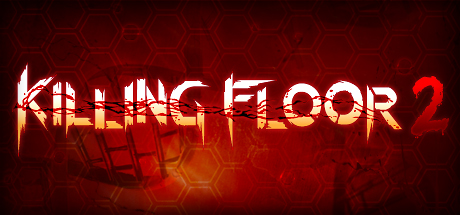
In the last few years, we’ve seen the rise of games like Call of Duty, which dilute their experience by trying to be everything for everyone. They become bloated with serviceable modes that all are perfectly adequate in their own rights, but don’t really excel in anything.
Conversely, games like Killing Floor 2, which come with a clear sense of identity and purpose, are becoming more and more rare.
Titanfall 2 - Review

It is not often that a shooter manages to get almost everything right. Every year we see so many games try and so many of them fail. The original Titanfall was a great game, that simply didn't last long enough to be fantastic. What was there was excellent, but there simply wasn't enough stuff packed in the box to leave many gamers, including me, satisfied. With Titanfall 2, we finally have what the first game promised to us and teased us with, and it is the best shooter of the year. It has a fun, if slightly ridiculous (in the best way) campaign, and a fantastic multiplayer mode that I've already dumped way too many hours into, that I can see myself playing for a long time. It is the most complete package on the market right now, and all signs point to its strength going forward.
Call of Duty: Infinite Warfare - Review
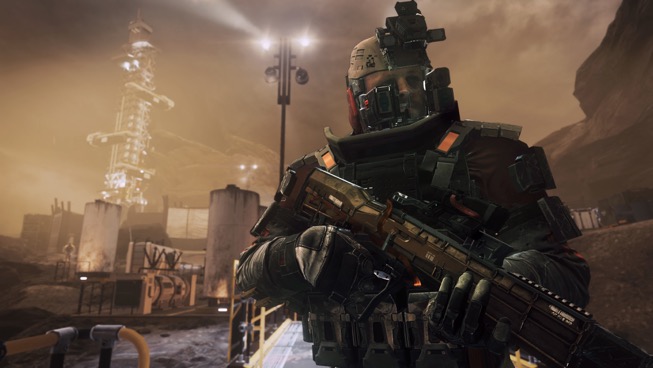
In some ways, Call of Duty: Infinite Warfare is the most interesting Call of Duty game to release since Modern Warfare. For once, they have finally nailed down the shooter campaign story in a way that no other game quite has this year. It goes to places that are legitimately surprising to see as a player, and they actually try to say something with the story. But at the same time, the multiplayer experience is subpar. Which is so out of left field for a game like Call of Duty. It is the exact opposite of what you would expect when you pick up one of these games each fall.
Small Radios Big Televisions - Review
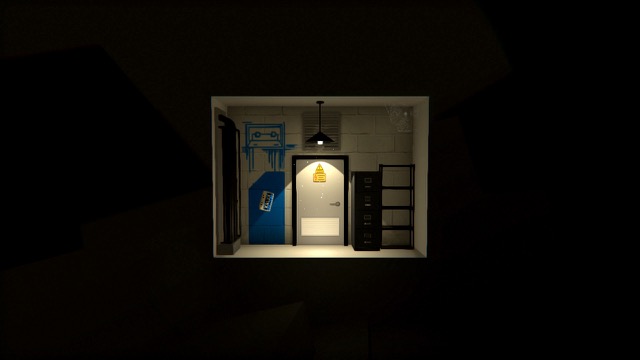
Small Radios Big Televisions is the latest title to be released by Adult Swim. Developed by Fire Face, the stylistic puzzler dips you into a series of themed “factories” as you try to figure out the mystery behind the world that you have found yourself in. Essentially it is a point-and-click puzzle game with a heavy emphasis on style over difficulty. The world is colorful and broken, as nature slowly tries to reclaim the crumbling buildings from civilization. To get through each one of the shaped factories, you must collect cassette tapes that you use with your character’s VR headset to transport you from your industrial tower back to a piece of nature from before whatever has happened to the world.
The Backlog - Middle-earth: Shadow of Mordor
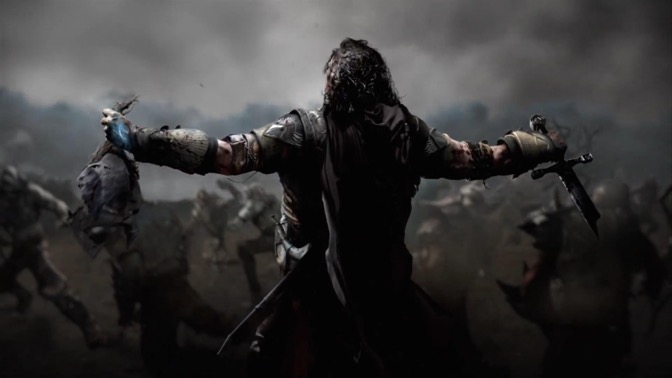
I have a confession to make. Like many of you reading this, I have a list of games that I’ve been meaning play for years. I have way too many games on Steam, and a stack of cases sitting next to my TV. Close to five hundred games now. Maybe more. It makes me feel guilty. I haven’t touched 90% of them in one way or another. I need to fix that. So this week, I dug deep into my backlog and pulled out a game. I want to play all of them; I’ve just never had the chance. Now’s the time.
There are a few games that I am really sad to still have sitting in my backlog, games that I felt that I needed to play and I never got the chance. Shadow of Mordor has been a part of this shame pile since it came out. Finally a good Lord of the Rings game, which is something that I’ve been missing for a long time. It took elements from so many other games that were successful and crammed it all together and somehow it worked. From the “Batman combat” to the Ubisoft tower climbing in a nice open world. But what really sealed the deal was the “Nemesis System” and its possibilities in the future of games.
Battlefield 1 - Review
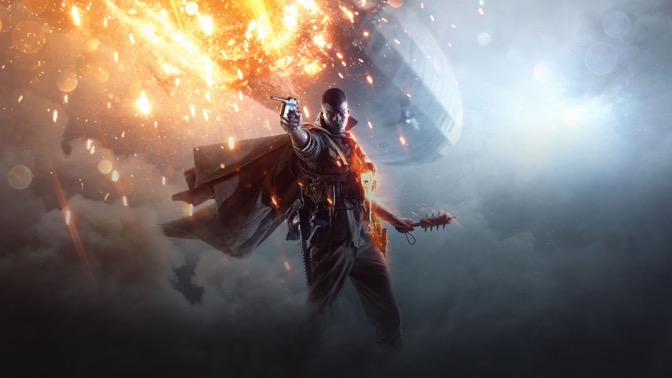
Battlefield 1 is an odd beast. It’s probably the best the series has been, but it’s also incredibly fickle.
I’ve played every Battlefield game since Battlefield 2, and never have the largest problems I’ve had with the series ever been addressed. The multiplayer has always been long treks to the spot of your inevitable death. Snipers have always been annoying. The campaigns have always been lackluster, though this last point was alleviated in the Bad Company games.
To my immense surprise Battlefield 1 has fixed every one of these issues, but from the ashes of these decade-old problems rise a whole new set of issues ranging from rage-inducing to a kind that simply make you shake your head and carry on.
Dishonored 2 - Review
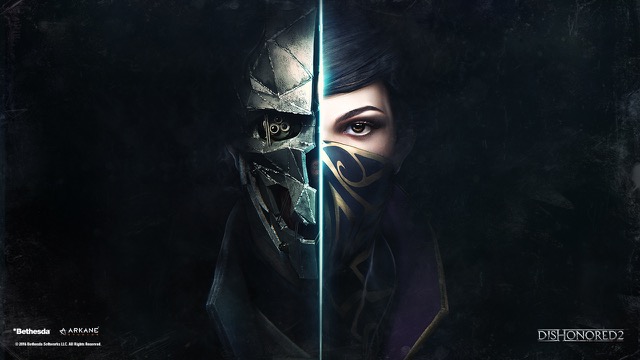
There is a lot of stuff that I really love about the Dishonored series. They nailed down stealth gameplay in a way that few other games have ever managed, allowing you to be either brutally efficient killing machine or stealthy, nonviolent avenger. There are so many great things that start to add up to make Dishonored 2 a great game. In many ways it’s better than the first, giving you options that you never knew you wanted until they were presented to you. But in two crucial ways it falls short for me. I like the way that this game plays but the story itself does nothing to pull me through the worlds. It feels like a flimsy excuse to put your characters back into the same situation as they were in during the first game.
The Backlog - Kill the Bad Guy
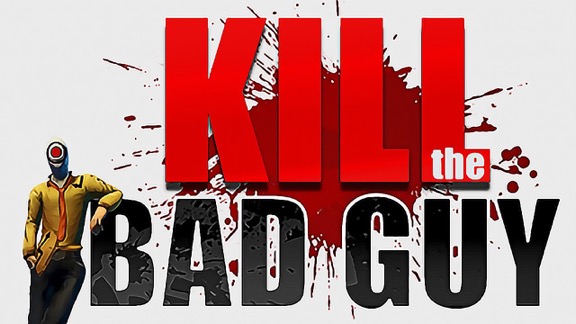
I have a confession to make. Like many of you reading this, I have a list of games that I’ve been meaning play for years. I have way too many games on Steam, and a stack of cases sitting next to my TV. Close to five hundred games now. Maybe more. It makes me feel guilty. I haven’t touched 90% of them in one way or another. I need to fix that. So this week, I dug deep into my backlog and pulled out a game. I want to play all of them; I’ve just never had the chance. Now’s the time.
Sometimes games try to be cary about their actual themes. They try to abstract them behind layers of gameplay and story that you have to dig through to find the “real meaning”. Kill the Bad Guy is not that game. It wears what it is proudly on its sleeve, a shallow, timing based physics puzzler all about satisfying those 2AM revenge fantasies on serial killers, psychopaths, and general assholes who make the world worse off. And when it is just this, it can be an enjoyable, if morbid, good time.
Super Dungeon Bros - Review
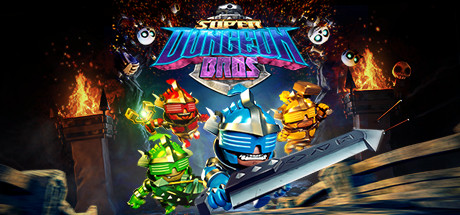
It is that time of the month again where we get a new free game from Xbox Live. This month we get the newly released Super Dungeon Bros, which tries to be part Castle Crashers, part Brutal Legend, and part Diablo all rolled up into a single hack-and-slash dungeon crawler. A supposedly rock and roll themed co-op quest where you fight your standard array of skeletons, floating eyes, and mages in progressively more difficult levels of the dungeon. You take control of one of four rock legends with Axl, Freddie, Lars, and Ozzie rounding out the core cast of characters. With them you challenge the dark land of Rokheim, and unfortunately the place isn’t looking so great. Traps, monsters, and crumbling architecture stand between you and the next level of the dungeon. You and your three color coded friends must push on to try to reach further depths in a quest to see how far you can get.
The Backlog - Borderlands: The Pre-Sequel
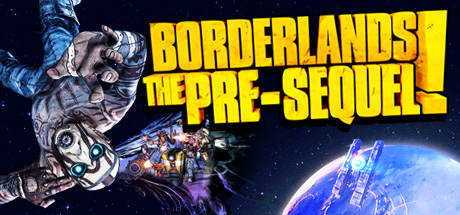
I have a confession to make. Like many of you reading this, I have a list of games that I’ve been meaning play for years. I have way too many games on Steam, and a stack of cases sitting next to my TV. Close to five hundred games now. Maybe more. It makes me feel guilty. I haven’t touched 90% of them in one way or another. I need to fix that. So this week, I dug deep into my backlog and pulled out a game. I want to play all of them; I’ve just never had the chance. Now’s the time.
I loved the first Borderlands. It came out at the perfect time for me to sink dozens of hours into that strange little world. I probably played through it four or five times with different characters and friends. I wrung every drop of enjoyment that I could out of it, and I had fun the entire time. I can remember how excited I was for the second game when it came out, and that night I rushed home with friends to play it as soon as it launched. But something was different. Some of the magic that used to be there was lost for me. I still played it through twice, but towards the end it started to feel more like an obligation as opposed to me actually wanting to play it more. The world started to feel empty and the characters started to annoy me. The gameplay was still the same solid base, and it carried the game for me for a long time, but eventually I put it down, and I haven’t looked back since.
The Backlog - Battlefield: Hardline
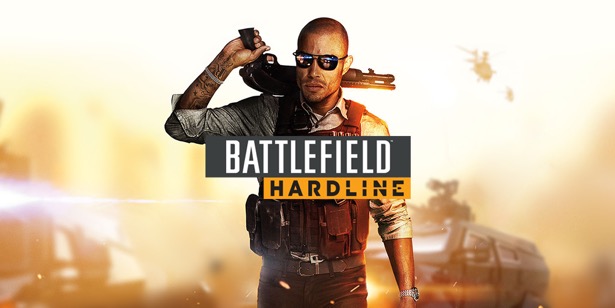
I have a confession to make. Like many of you reading this, I have a list of games that I’ve been meaning play for years. I have way too many games on Steam, and a stack of cases sitting next to my TV. Close to five hundred games now. Maybe more. It makes me feel guilty. I haven’t touched 90% of them in one way or another. I need to fix that. So this week, I dug deep into my backlog and pulled out a game. I want to play all of them; I’ve just never had the chance. Now’s the time.
With Battlefield 1 already in players hands, I thought it was only appropriate to go back to the oft-maligned and forgotten Battlefield: Hardline. The game that a franchise desperately wants you to forget. It was the 2015 attempt at annualizing the franchise, and unfortunately, a cops and robbers themed game released at a time where players weren’t looking at police as heroes. This coupled with some confusing design decisions that made Hardline feel unlike many Battlefield titles of the past, combined to quickly push this game out of players minds. I picked up a copy early this year, and it fell to the bottom of a stack of games a mile long. Until now.
Lovers in a Dangerous Spacetime - Review
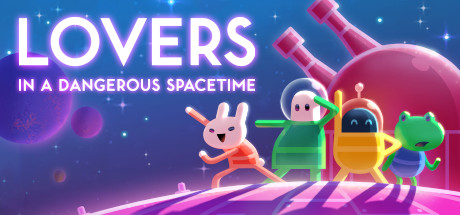
It is rare to see a game that allows its players to play together on the same system. The days of couch co-op are long past. It is even rarer to see a game that practically demands it. Lovers in a Dangerous Spacetime, which sounds like something equal parts 1950’s science fiction and pulp romance novel, begs you to play with someone else. Together. Playing alone, this game is good, albeit a little frustrating at times, as you and your space pet, a relentlessly happy fur ball of a cat or dog, battle your way through a bleak but colorful space full of enemies and environmental hazards. They stand between you and saving your tiny friends and fighting back the anti-love that is threatening the universe.
Going Back To Call of Duty
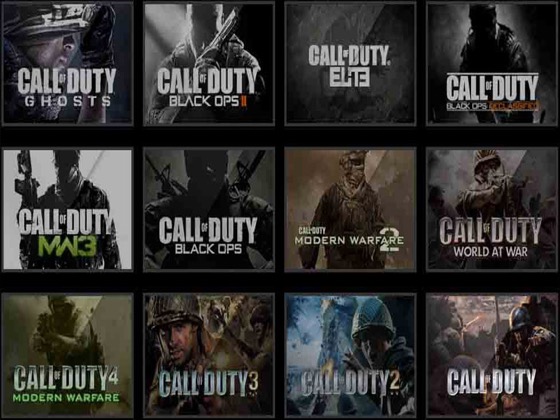
It has been interesting to see where Call of Duty has ended up. I came to the franchise back in 2005 with Call of Duty 2: The Big Red One and got hooked when I first picked up the original Modern Warfare. Call of Duty 4 changed the face of the modern shooter, and when it was announced that it was being re-released with this years integration of the franchise, it felt like it was time to go back and see where modern Call of Duty games began, and where they began to go off the rails. I have not been drawn into the last few titles and a part of me missed the simplicity of the older titles. While they kept the fast-paced, frenetic action, they shortened the feedback loop and added in so many different systems that started to overwhelm me. There was always something going on: a different medal, award, or unlock. It got to the point where there was always something flashing across my screen, and it started to lose its attraction.
Microtransactions
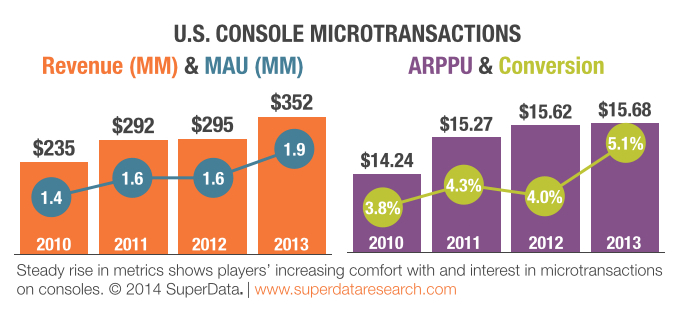
For years, we have heard that the future of gaming is not with big AAA console releases. Since the widespread adoption of the smartphone as the de facto standard, the message has been that the mobile platform is the future. Small, cheap/free games that subsidize themselves through ads and in-app purchases. I scoffed at this idea initially, like many of you reading. How could Clash of Clans replace Call of Duty? But in this new console generation, you can watch as games trend towards these ideas. This does not match the vision of a future in which consoles no longer exists, and you life revolves around your phone, but it also doesn’t match what we imagined when we were kids playing Nintendo games. It has raised interesting questions about what makes a game, what a game includes, and what place micro transactions have in our hobby.
Deus Ex: Mankind Divided - Review
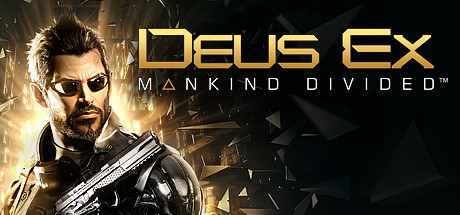
Deus Ex does its best to raise interesting questions about morality, humanity, and authority in its newest installment. Back in the shoes of Adam Jensen, you work as an agent of a secret government task force that tackles terrorism. Since the end of Human Revolution and The Aug Incident, augmented people have experienced systematic oppression and injustice, and a group has sprung out of the anger that it has caused. The Augmented Rights Coalition (ARC) is suspected of bombing a train station and you must investigate, while at the same time attempting to find out what happened to you in the aftermath of the incident on Panchaea. Someone tinkered with your augs, unlocking powerful new abilities of you to play with, on top of the same compliment of powers from the previous game that you are already familiar with.
Who is the Next Enemy?
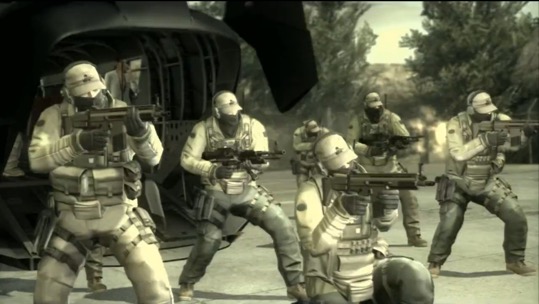
lt is no secret that video games have you kill a lot of people. If you have played them with any sense of regularity, chances are that by now you have gunned down tens of thousands of monsters, terrorists, and soldiers across the ages. Every few years, games go through distinct phases where enemies all seem to be the same type. We’ve had the World War 2 era, where Nazis were the cannon fodder of choice. Before that we had monsters and mutated freaks. Russian and Chinese soldiers were the flavor of the month for a while, and the zombie craze is still ongoing. Generic terrorists are always a good fallback, and it’s no surprise when a popular game relies on one of these clichés for their antagonists. But as our world becomes more complex and our threats become more fluid it has raised interesting questions for players and developers, and it asks us: Who is the next target?
The Backlog - Luftrausers
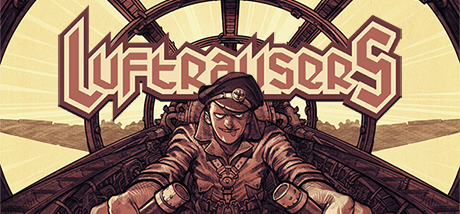
I have a confession to make. Like many of you reading this, I have a list of games that I’ve been meaning play for years. I have way too many games on Steam, and a stack of cases sitting next to my TV. Close to five hundred games now. Maybe more. It makes me feel guilty. I haven’t touched 90% of them in one way or another. I need to fix that. So this week, I dug deep into my backlog and pulled out a game. I want to play all of them; I’ve just never had the chance. Now’s the time.
I’m a big fan of many of the titles that Devolver Digital has published over the years. They all seem to have a certain sense of “style” to them. Luftrausers is, of course, no exception to this. What appears to be a relatively simple game at the surface hides a surprisingly complex system of upgrades that can fundamentally change the way you play. You take control of a tiny place faced with a big problem - jets, fighters, missiles, boats, subs, oh my. They all stand in the way of your ultimate goal, getting a lot of points as quickly as possible.
How Much Do You Need To Play?
I’ve been playing games for a very long time. I’ve been reviewing them for years. And over this time, I’ve noticed a trend towards longer and longer games. As a player, this is a really exciting trend. I love the push towards a more intense, story-focused experience for a player. But at the same time, it is beginning to get a little out of hand. I’ve written about this before in regards to every games desire to have an expansive open world. It seems like every game wants to be an epic, 40 plus hour-long experience, following the chosen character as they save the world/galaxy/universe.
This raises an interesting question for reviewers. How much do we need to play? Read More…
Grow Up - Review
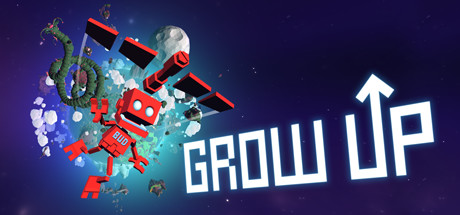
It is refreshing to sit back and play something a little more relaxing every now and then. Coming off of several months of playing some fantastic, if relatively day and self-serious titles, an experience like Grow Up can serve as a nice palate cleanser. A follow up to the 2015 title Grow Home, it tasks you with navigating an alien world as the robot B.U.D, attempting to reassemble your scattered ship at the behest of M.O.M, the AI in charge, so that your journey across the galaxy can continue unabated.
The Backlog - Nuclear Throne
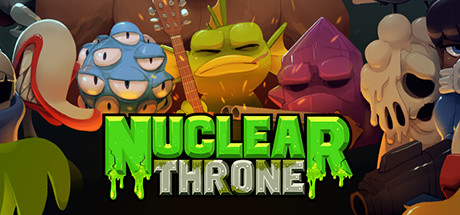
I have a confession to make. Like many of you reading this, I have a list of games that I’ve been meaning play for years. I have way too many games on Steam, and a stack of cases sitting next to my TV. Close to five hundred games now. Maybe more. It makes me feel guilty. I haven’t touched 90% of them in one way or another. I need to fix that. So this week, I dug deep into my backlog and pulled out a game. I want to play all of them; I’ve just never had the chance. Now’s the time.
I landed on the twin-stick, rogue-like shooter Nuclear Throne. A former early access game by Clamber, the critically acclaimed indie title has you taking control of one of a cavalcade of mutated freaks and monsters as you try to blast your way through dozens of disfigured enemies to reach your ultimate goal, the Nuclear Throne. There is no story. No character motivations. Only pure gameplay.
A Case Against Open World Games
It’s not often that I argue against adding features. It’s counter intuitive. It goes against everything I normally stand for, and everything everyone else normally stands for. We want more. We want our dollars and cents to be giving us a tangible experience, as massive as possible. We want the cost benefit analysis to be as positive for us as possible. To be able to milk every single last hour and minute out of a game. Read More…
Warriors Orochi 3 Ultimate - Review
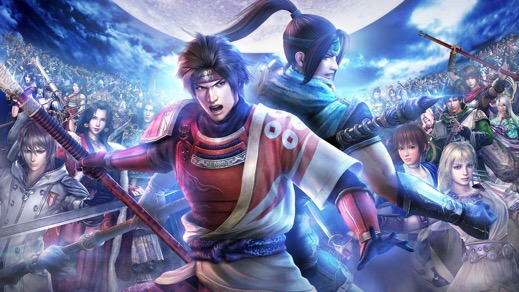
I’m glad that this game went free. I would otherwise never have played it. I don’t exactly like “Musou” games. I never really have. Every few years I will pick up the latest one for an afternoon to see if I have been missing something, and every time I quickly find myself sated. I don’t know why. Maybe I came to them too late in my life, I missed something by not playing them as a child. Maybe they simply aren’t the games for me. That being said, Warriors Orochi 3 Ultimate is easily the most fun I’ve had while playing one of these games, even if it couldn’t grab hold of me for very long.
Movies and Games
Like many of my peer in the critical space, my interests follow a certain path of pop culture and pop media. I love everything from books, to music, to movies, to games, and more. And fortunately for myself, I was born at what is perhaps the most perfect time in the world to enjoy these mediums, as a huge growth of creativity is taking place, a veritable Cambrian explosion of creativity and tech for me to play with. Unfortunately, the one are in which this innovation is lacking is with movie tie-in games, a genre oft overlooked by fans, and for very good reason. Read More…
Left 4 Dead - A Love Story
By now, every so-called "Hardcore Gamer" knows where the modern video game came from. Everything we know was spawned from the cultural phenomenon known as Dungeons and Dragons. It introduced us to the concept of the modern role-playing game. It gave us the idea of a persistent character and dungeon crawling epics. From there, the video game scene exploded. CRPGs flourished until the advent of the video arcades, which popularized the quarter crunching games of the eighties and nineties. Read More…
Skyrim and Individual Experiences
I want to talk about Skyrim. Well, I guess not just Skyrim, but I recently dove back into the game and it really started to make me think. When I first played the game back in 2011, I had an experience similar to many others who picked up the game. I ran through the giant world, stealing everything I could lay my hands on, murdering everything in sight, and grabbing every piece of loot I could find before finally putting it down, 200 some odd hours later without ever having completed the title. Read More…
On The Act of Killing
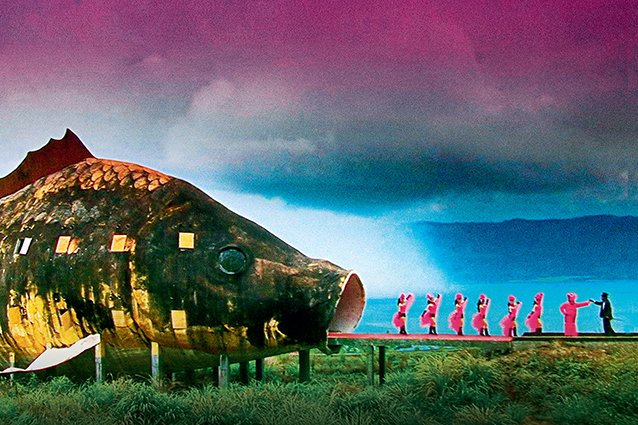
Death is one of the most significant events in our lives. It’s one of our only assurances. It is going to happen at some point. Whether you like it or not. Death will visit us, touching someone, somewhere, somehow. It’s an event that forever changes those who it touches. It has an impact that cannot be understated.
Let's Talk About Fallout 4
Let’s talk about Fallout 4. I’m a pretty big fan of the franchise, and while it might be sacrilege to some to mention, my favorite game of all time is Fallout 3. It really made me love games like none other, and it got me into this whole criticism thing. It’s the first game I ever marathoned, playing it for seven hours straight the first day I had it, as a weird thirteen-year-old sitting in my basement in front of my TV.
So when I heard that a sequel was coming out, I was a little bit excited, to say the least. From the announcement to the release I could barely contain myself, and when the day came I kicked my friends off of my TV so I could play my preloaded copy. And as I first dove into the game it was amazing. It controlled so much better, and I didn’t have to rely on the crutch of V.A.T.S to make my way through encounters anymore.
Read More…
Kentucky Route Zero
It’s hard to talk about video games without using references to games that have come before them. That’s why we have we call games “Roguelikes” or “Metroidvanias”. Because when we encounter a new experience, we look for ways we can relate it to something we are all familiar. Maybe it is an old game like Rogue, or a massively popular series like Metroid or Castlevania. But what do we do when we encounter a truly new experience? That is the question I found myself asking when I first picked up Kentucky Route Zero. While I could see elements of its predecessors within it, I found it hard to truly describe it to others outside of simply saying that it was different. Read More…